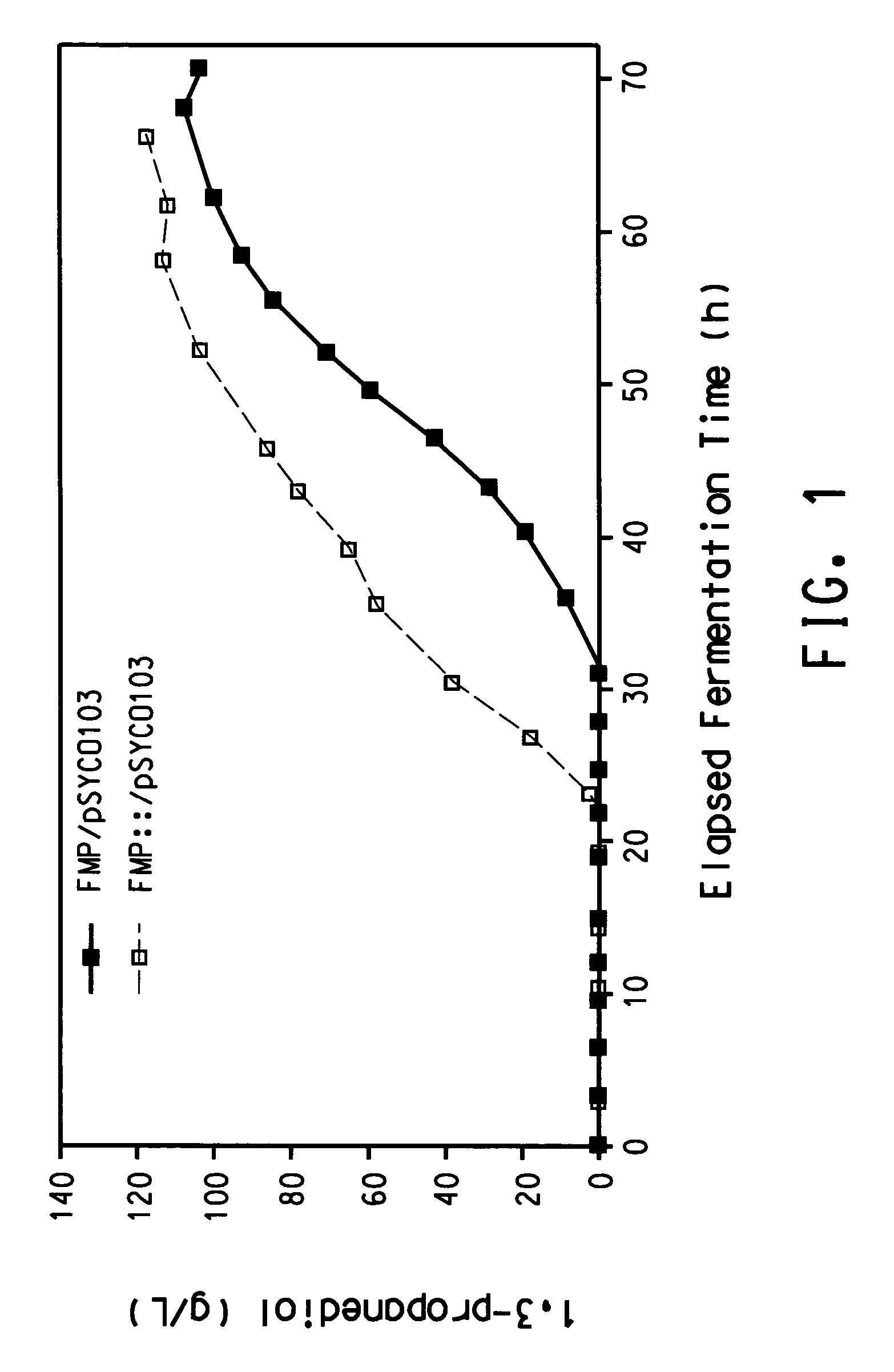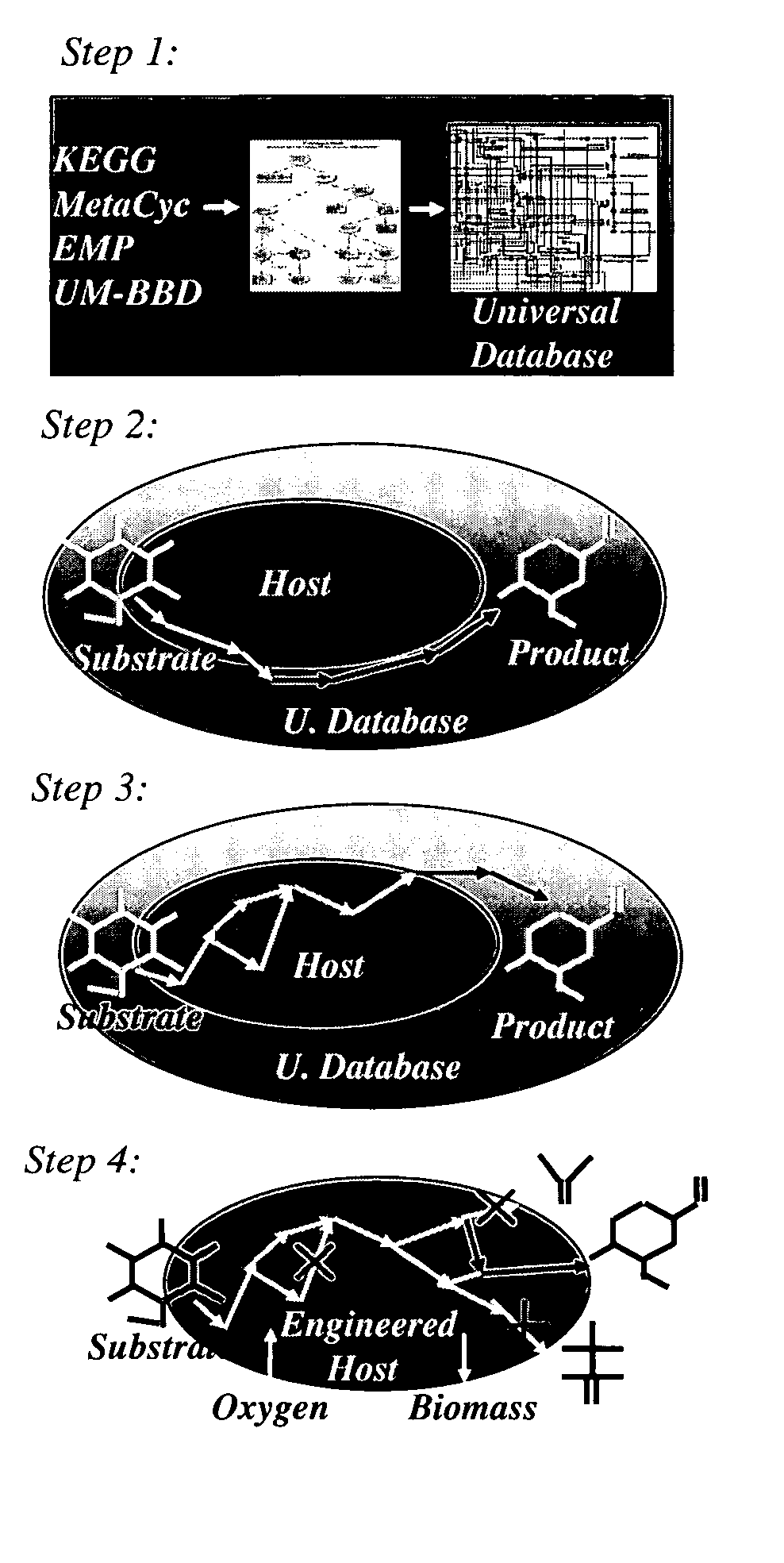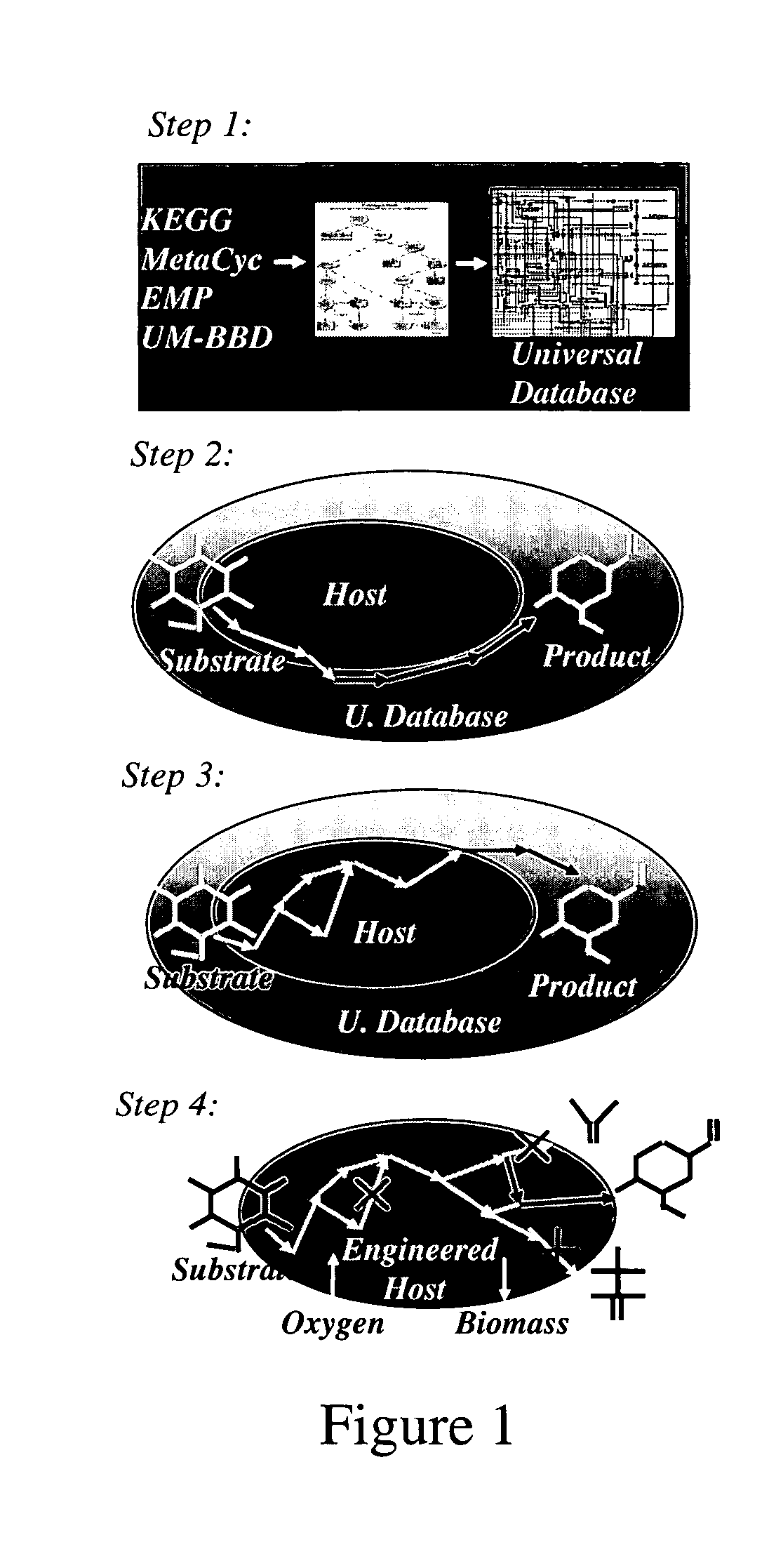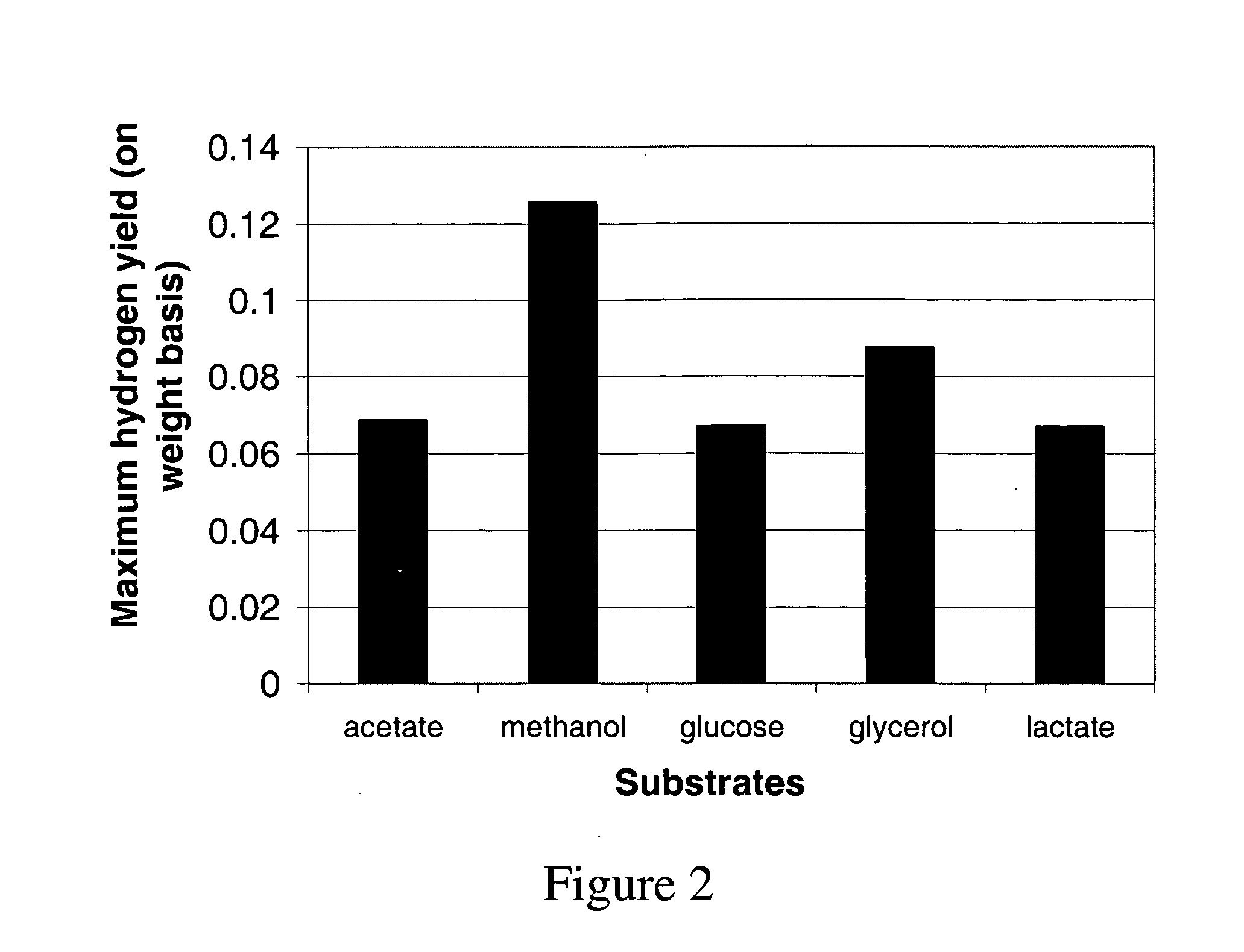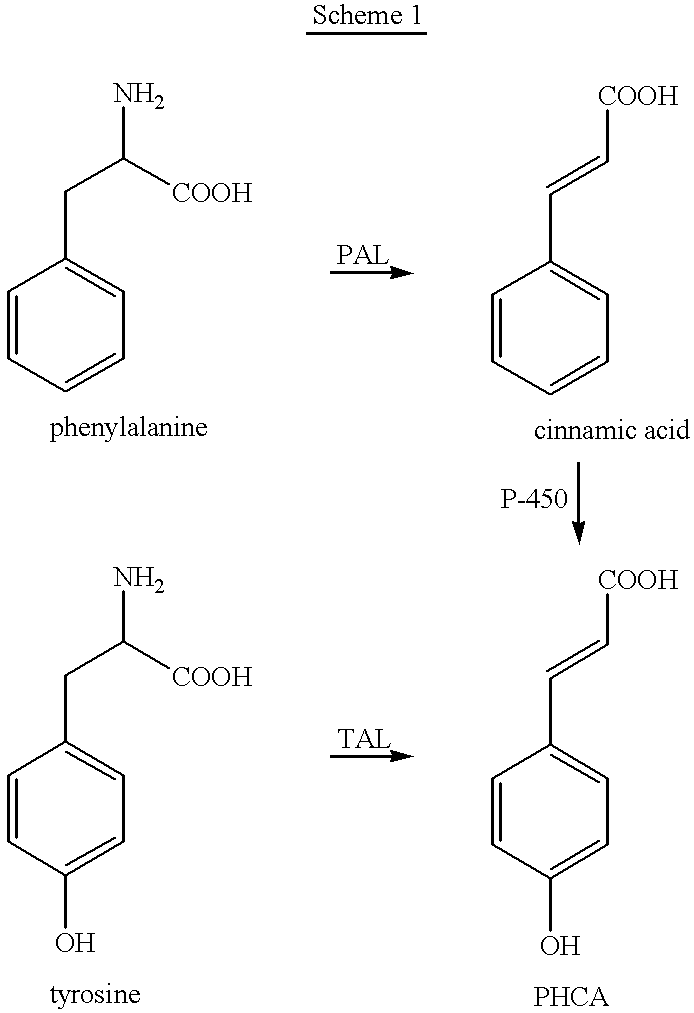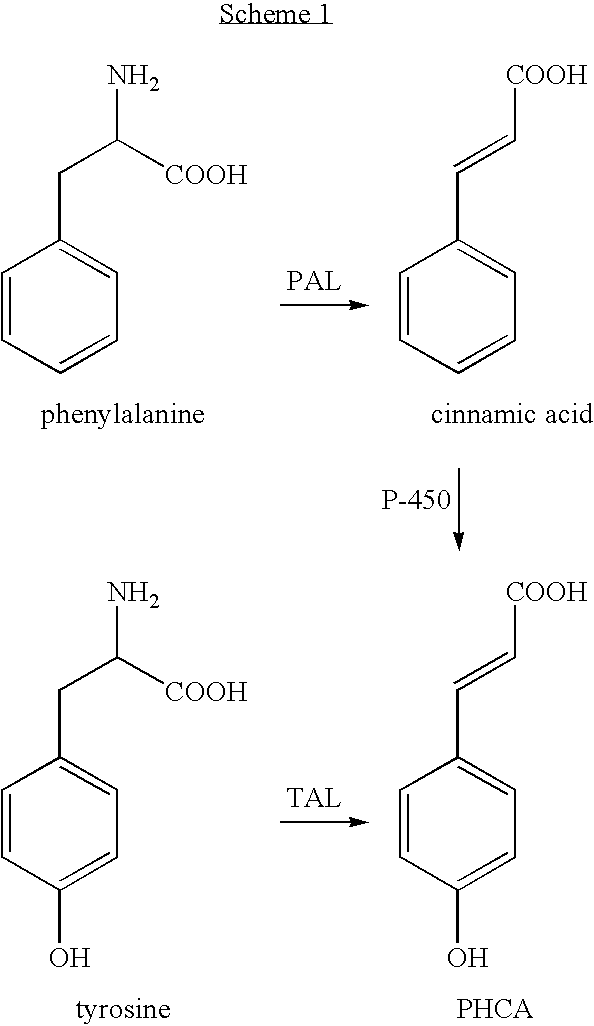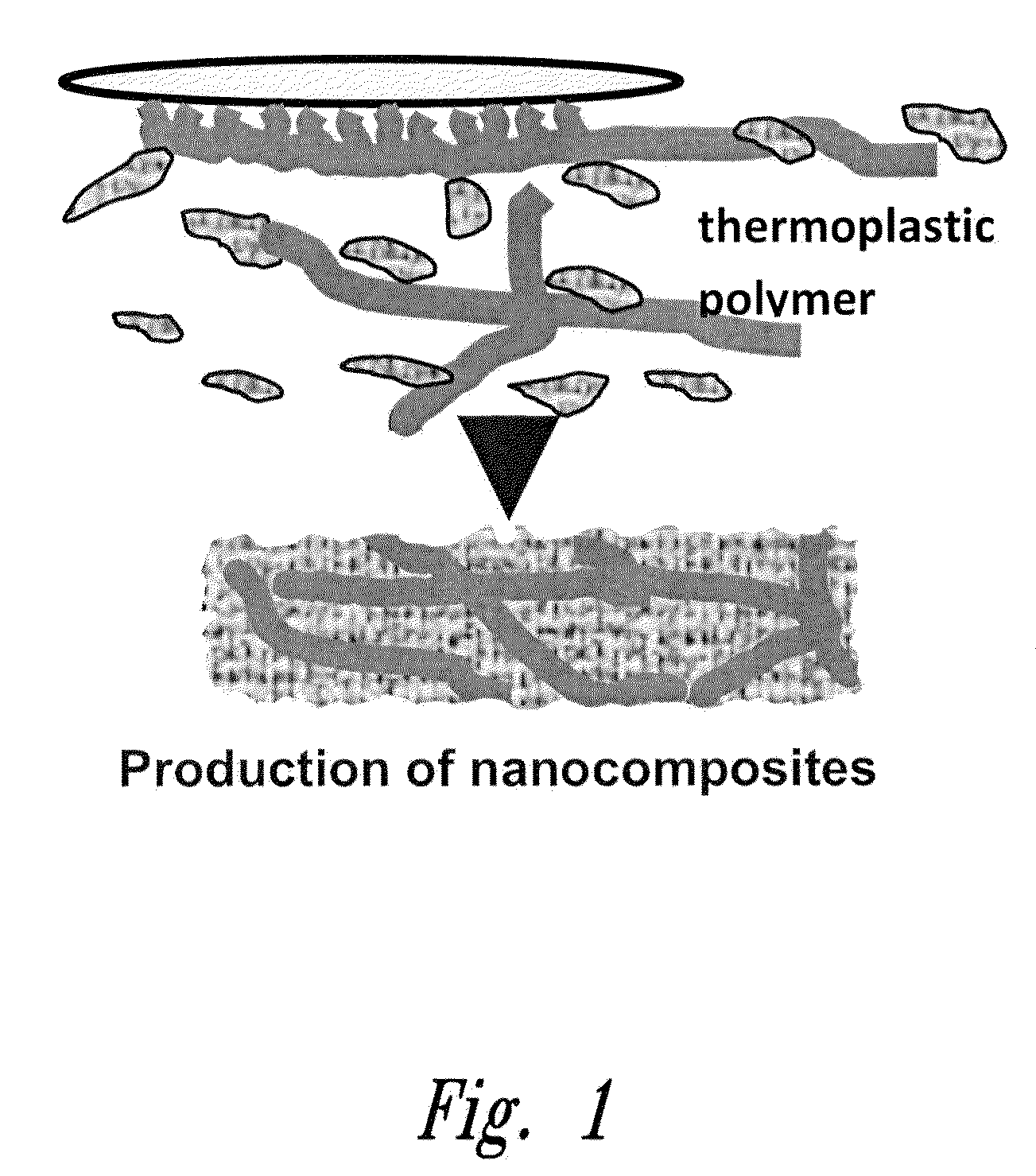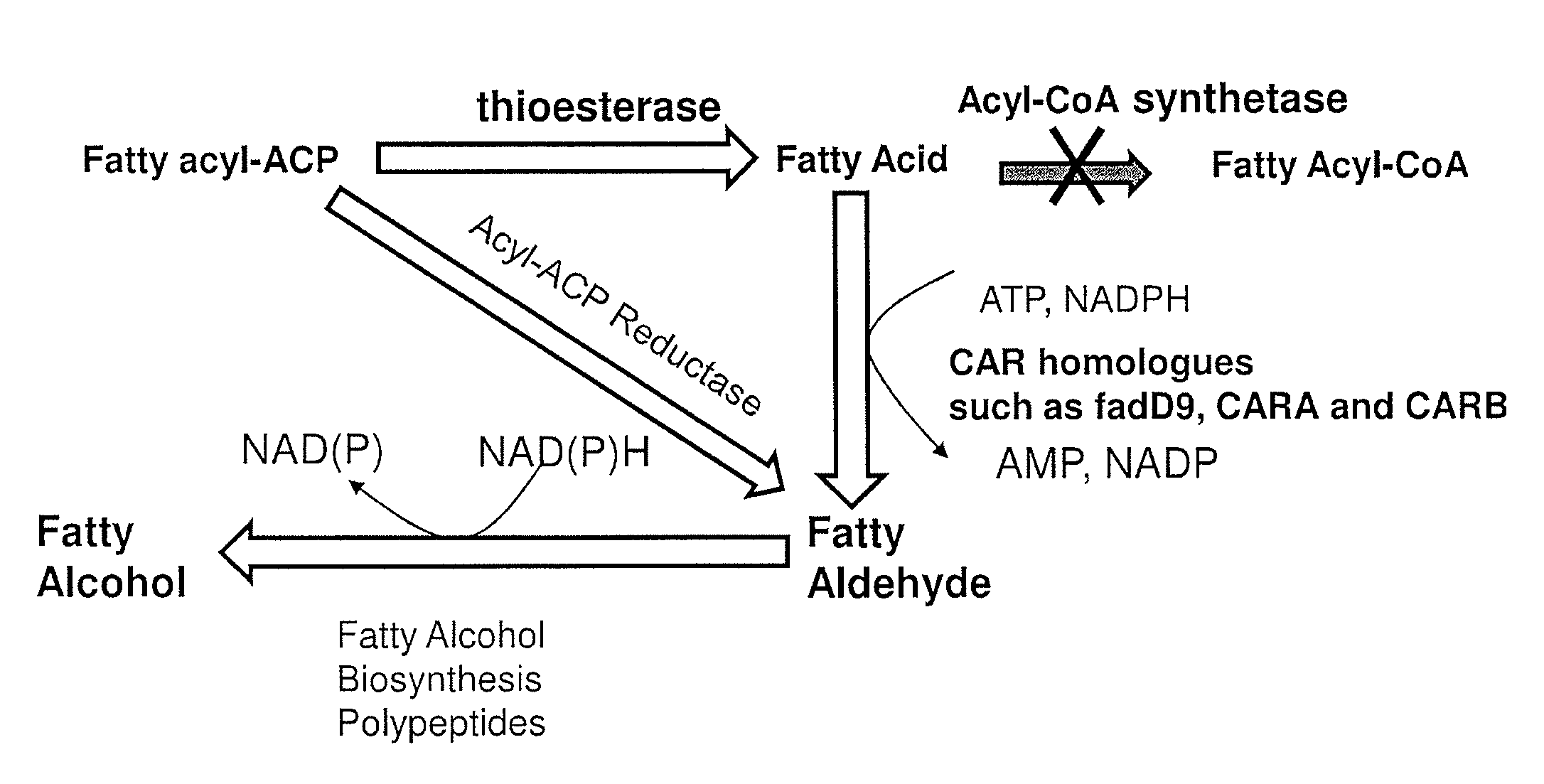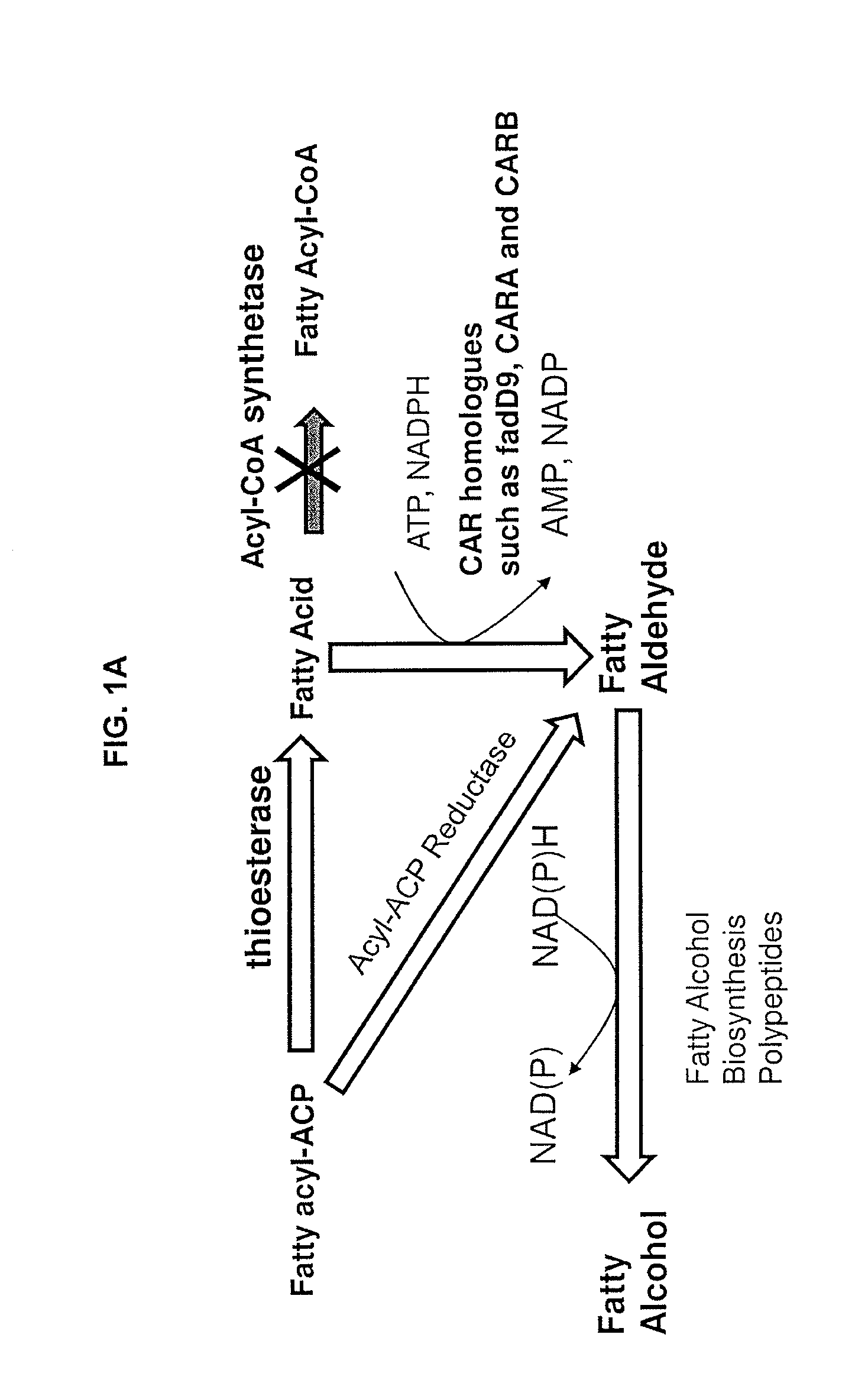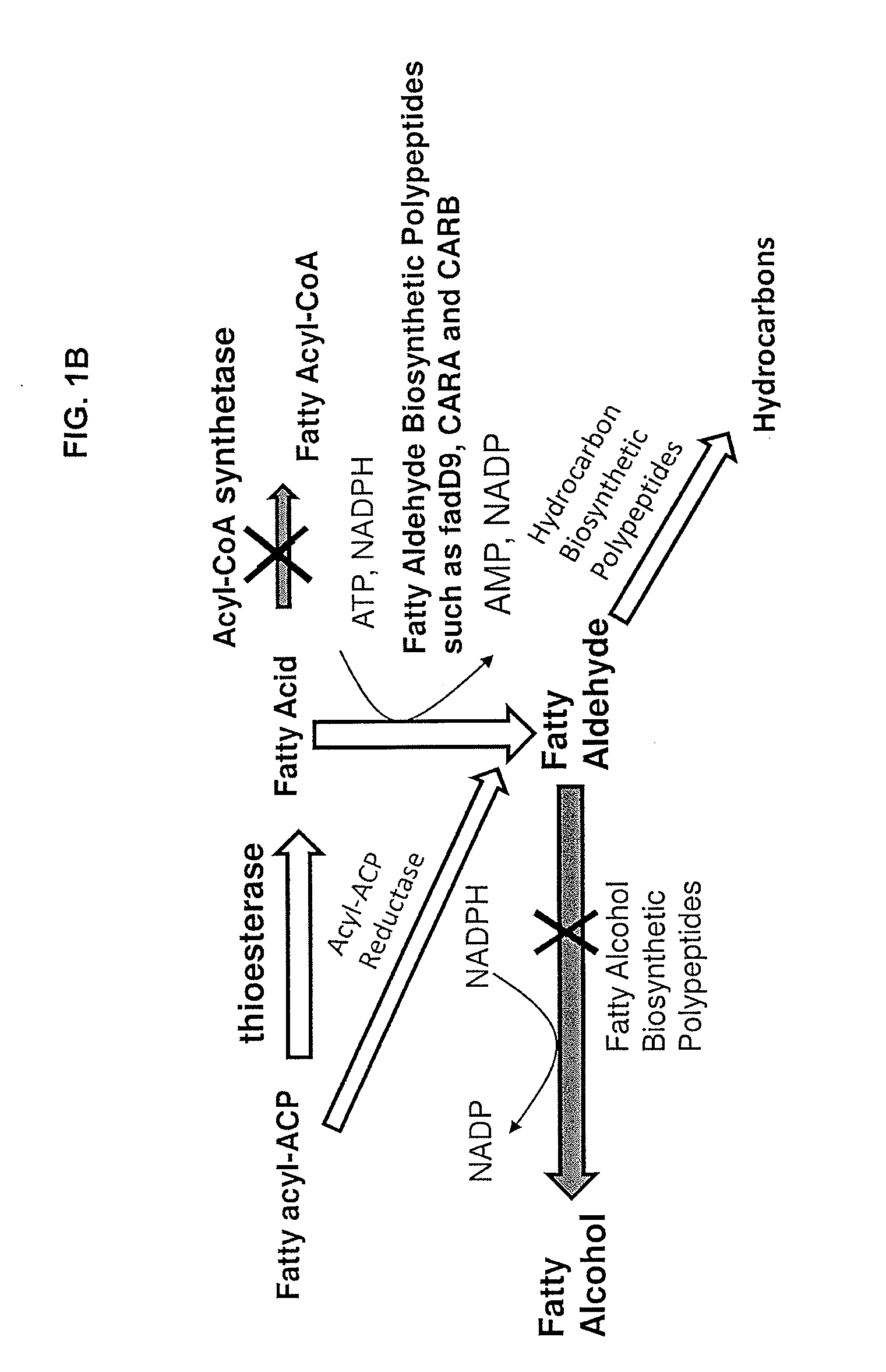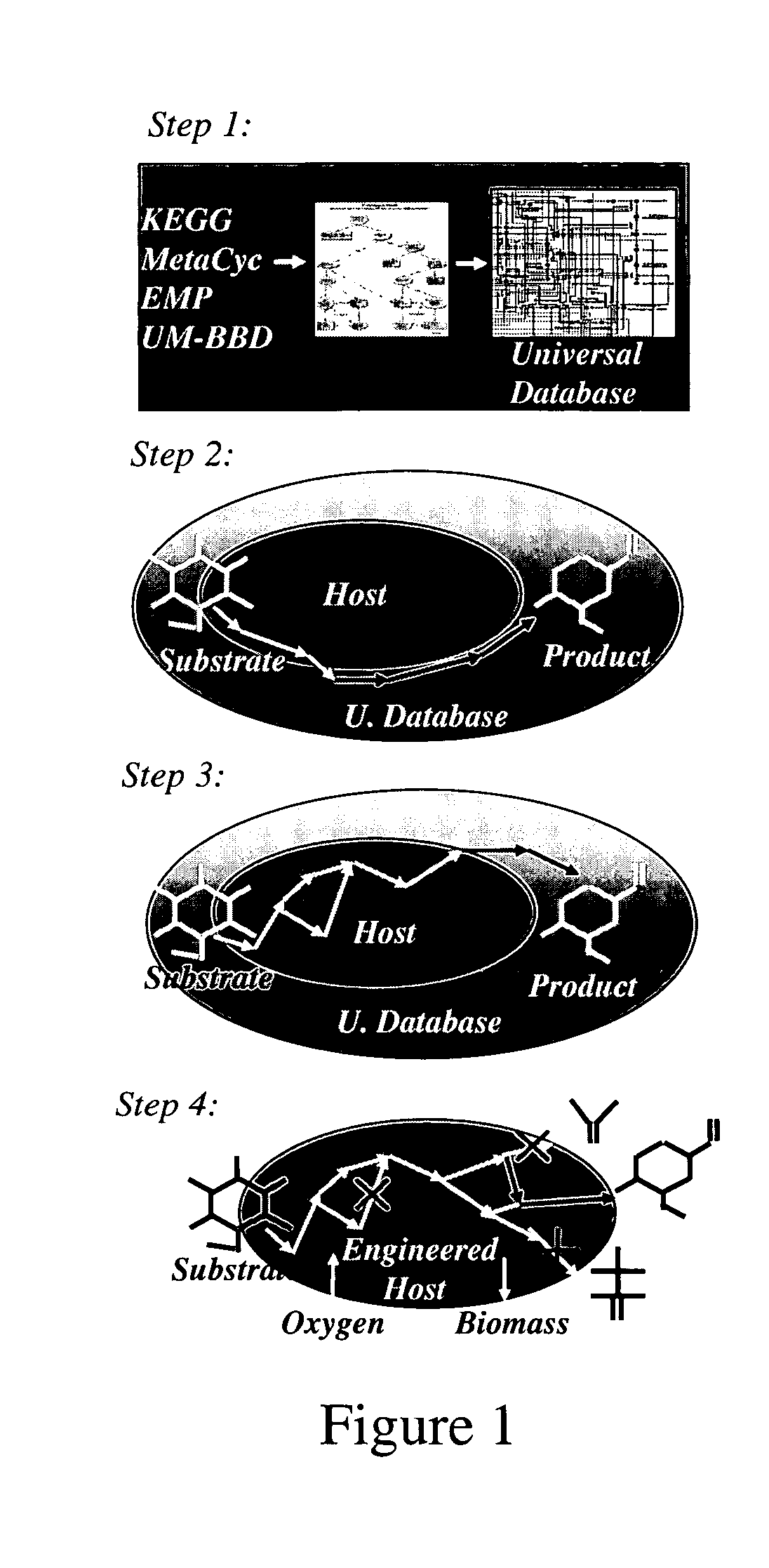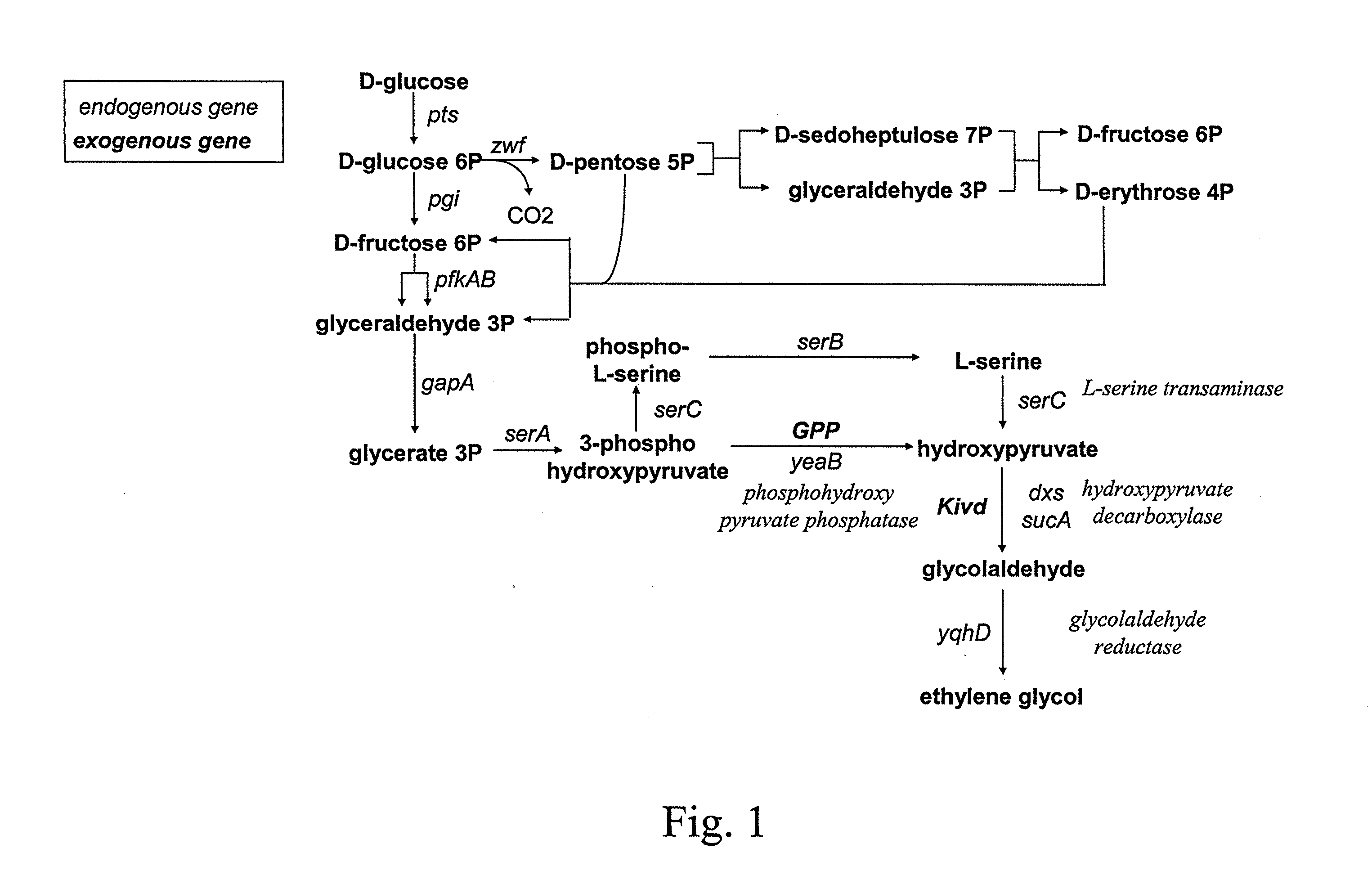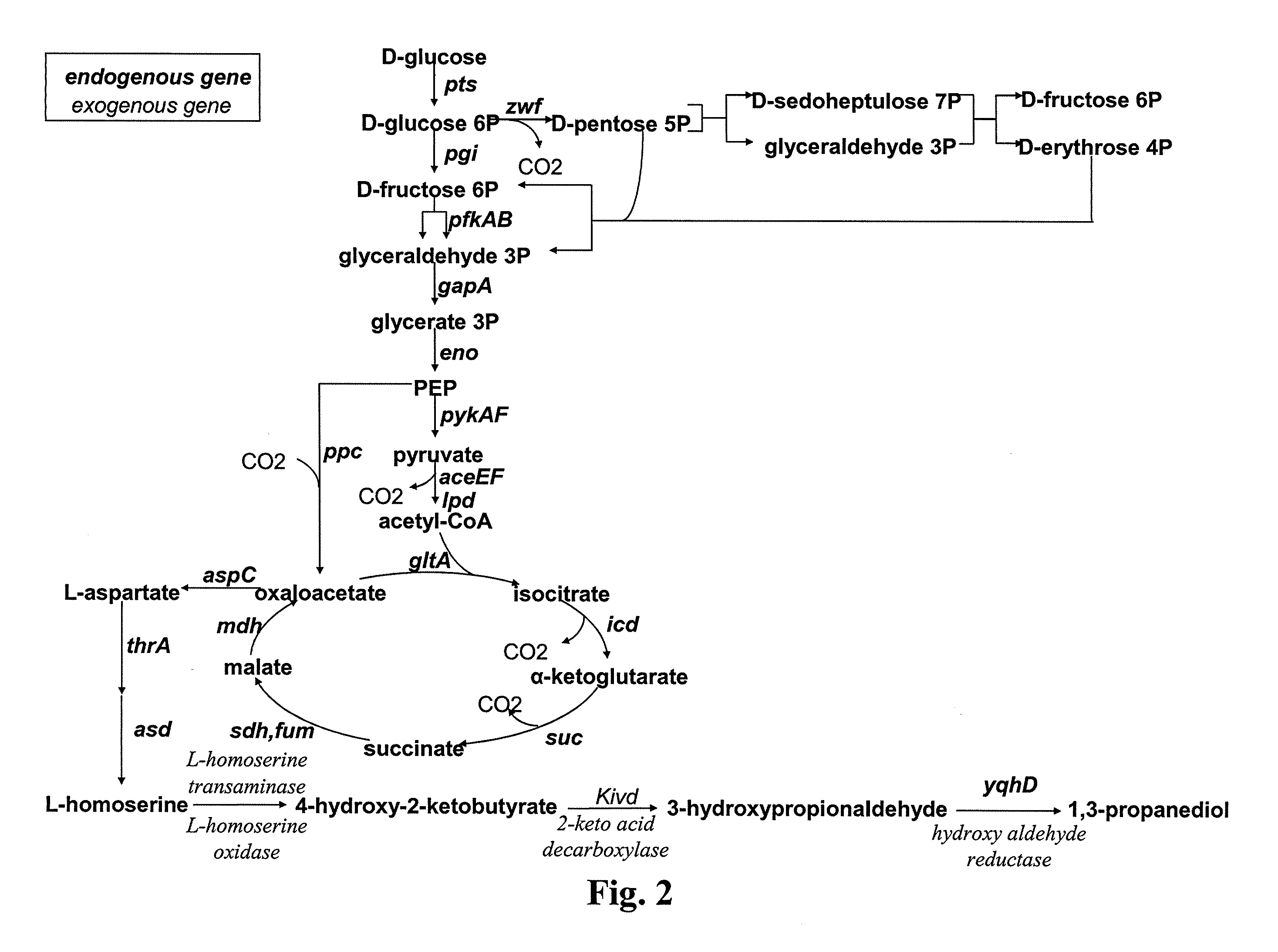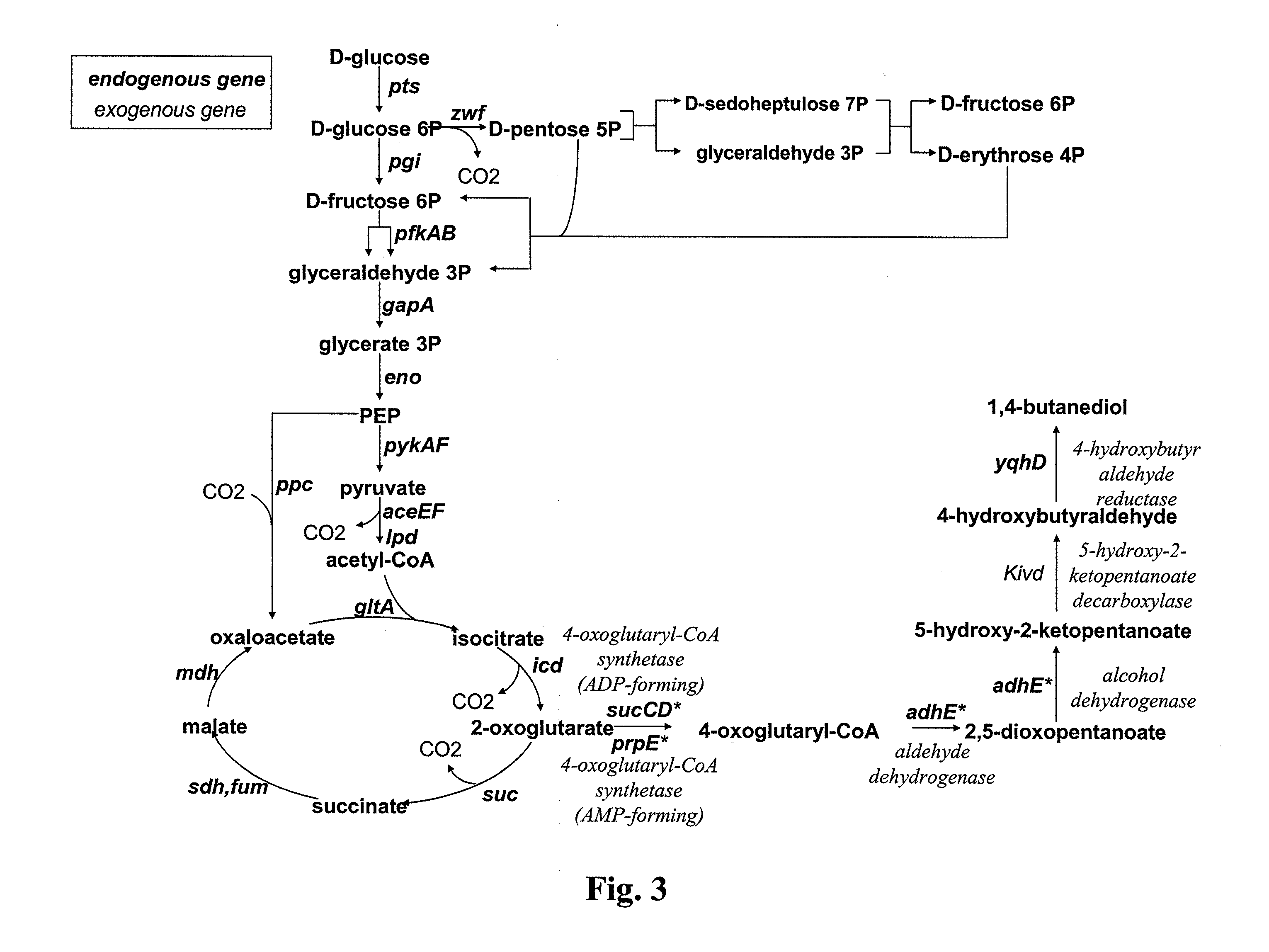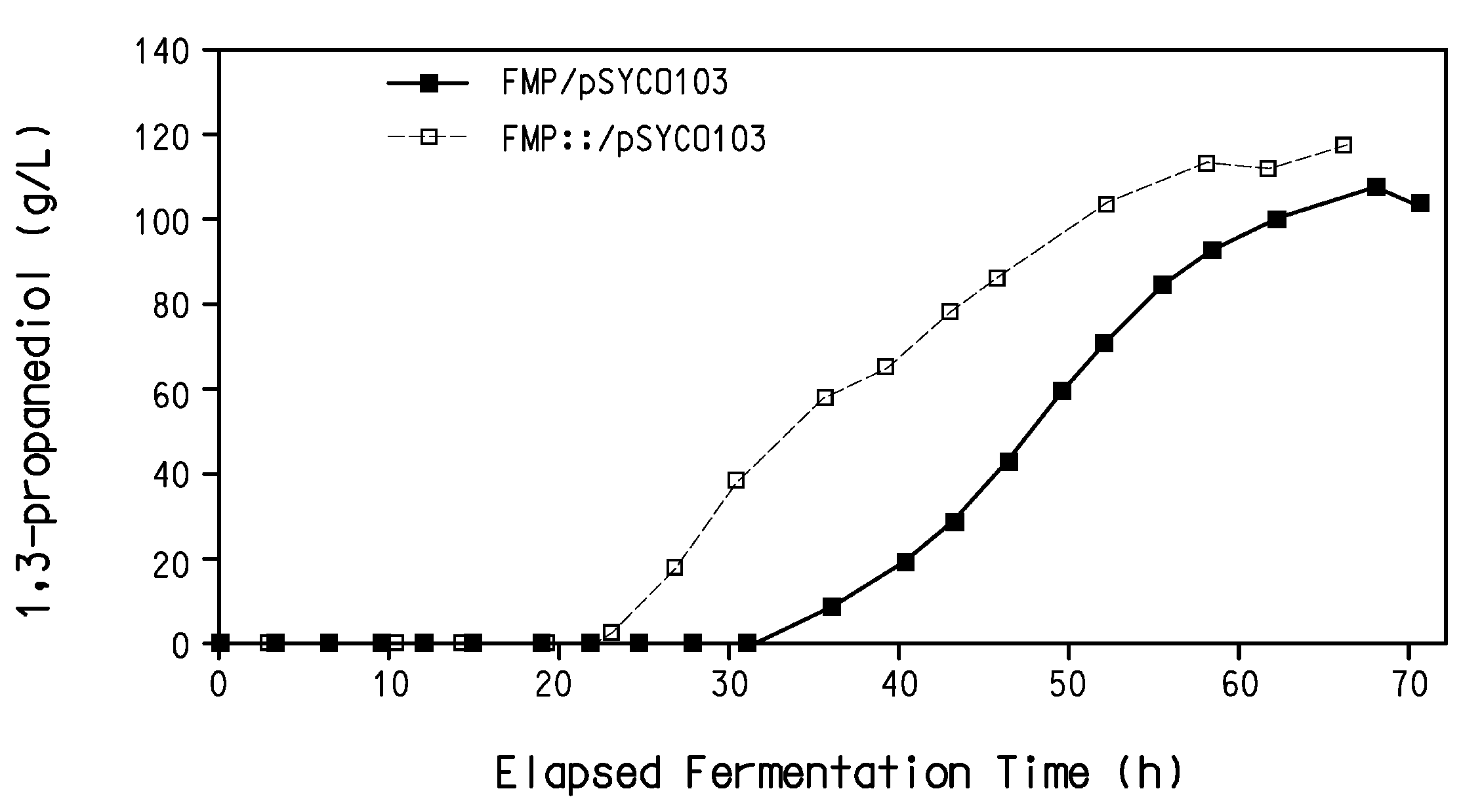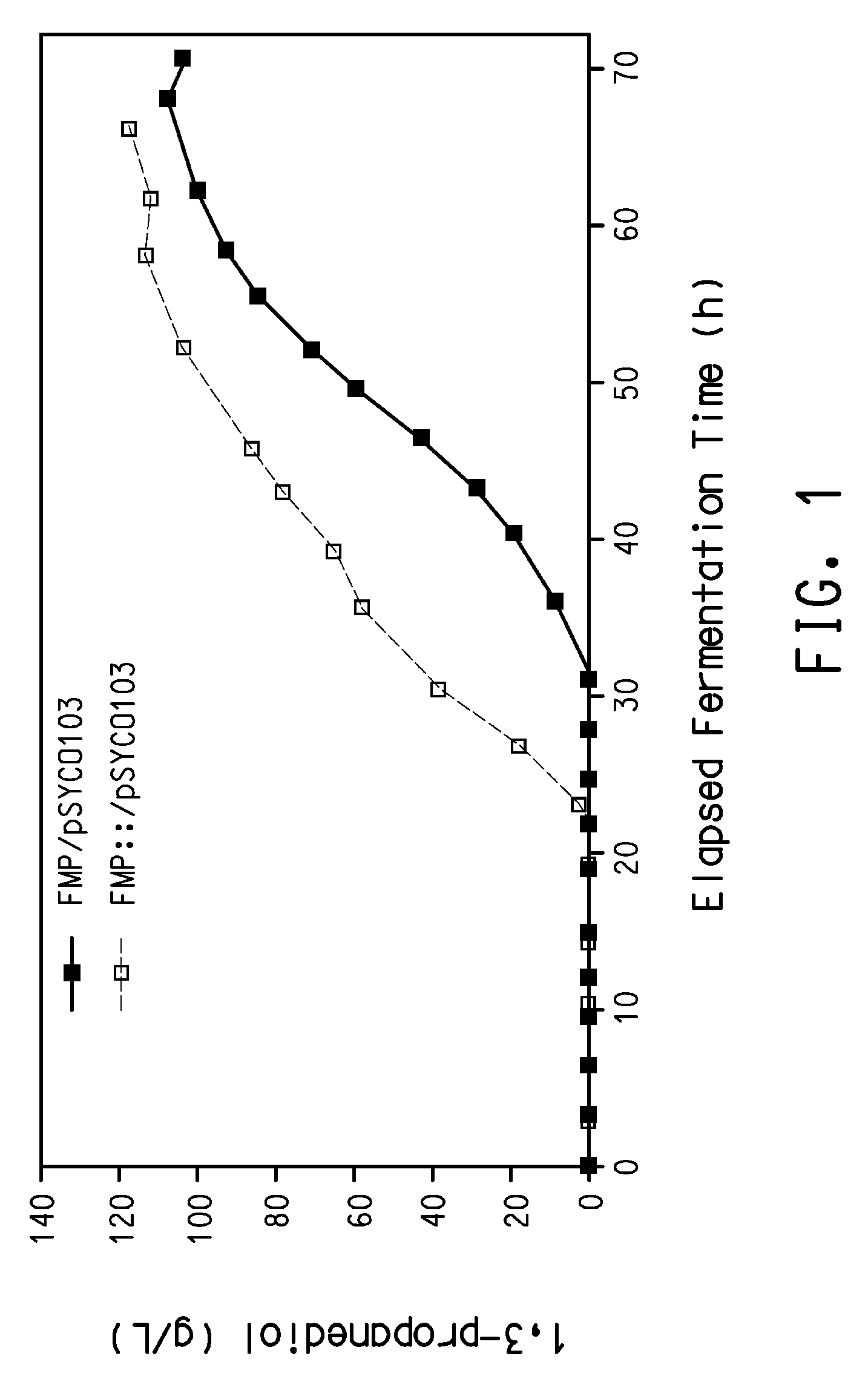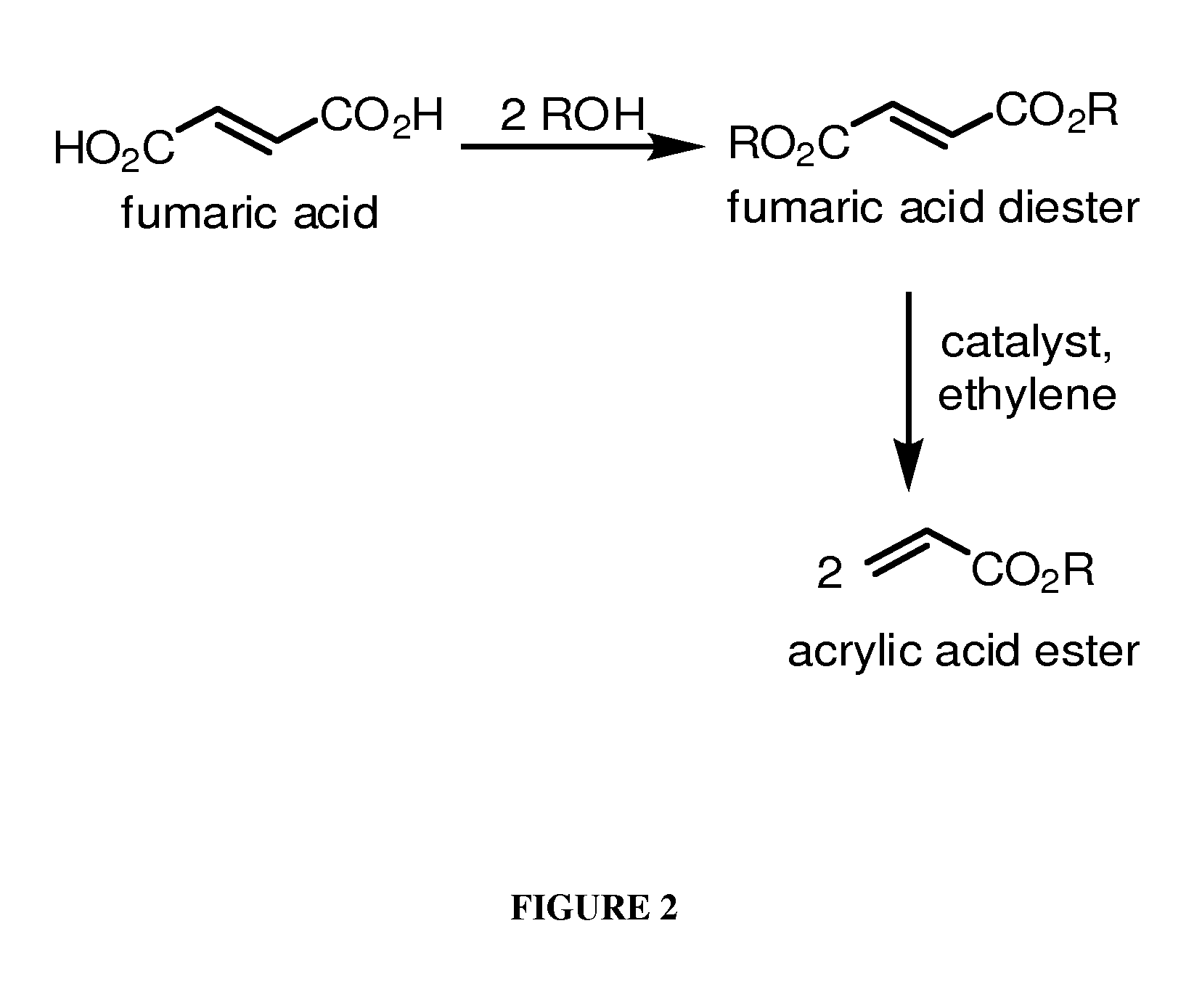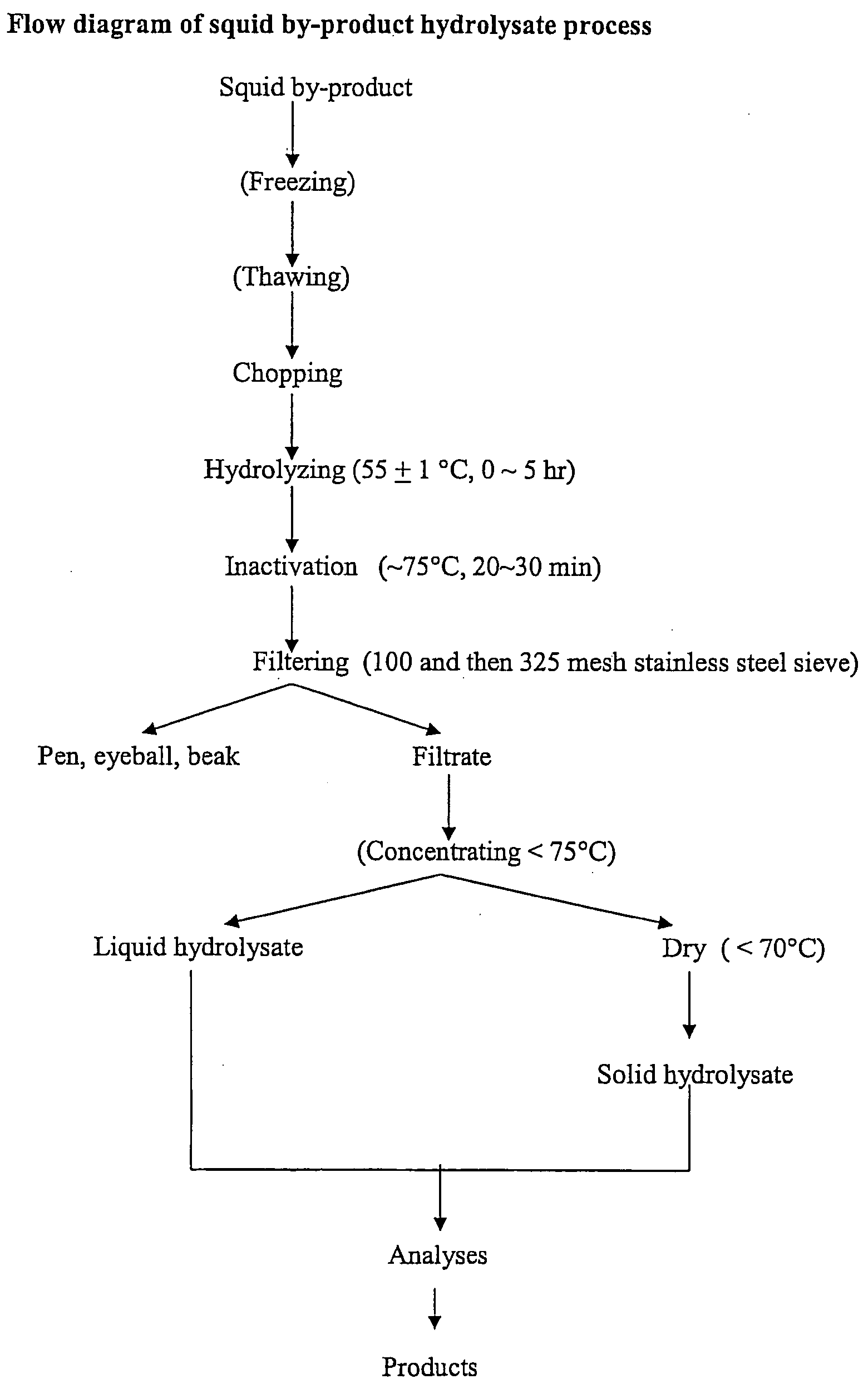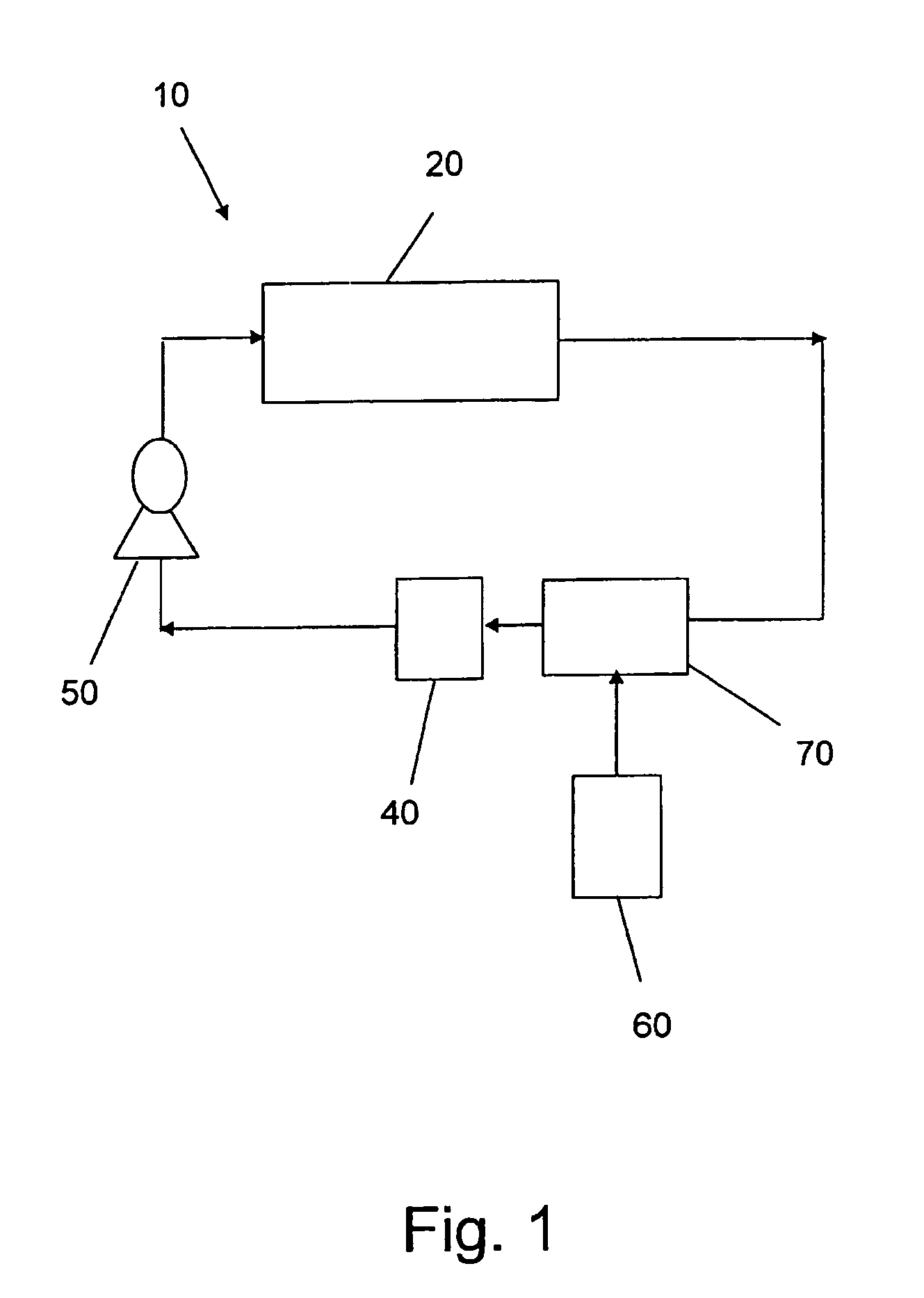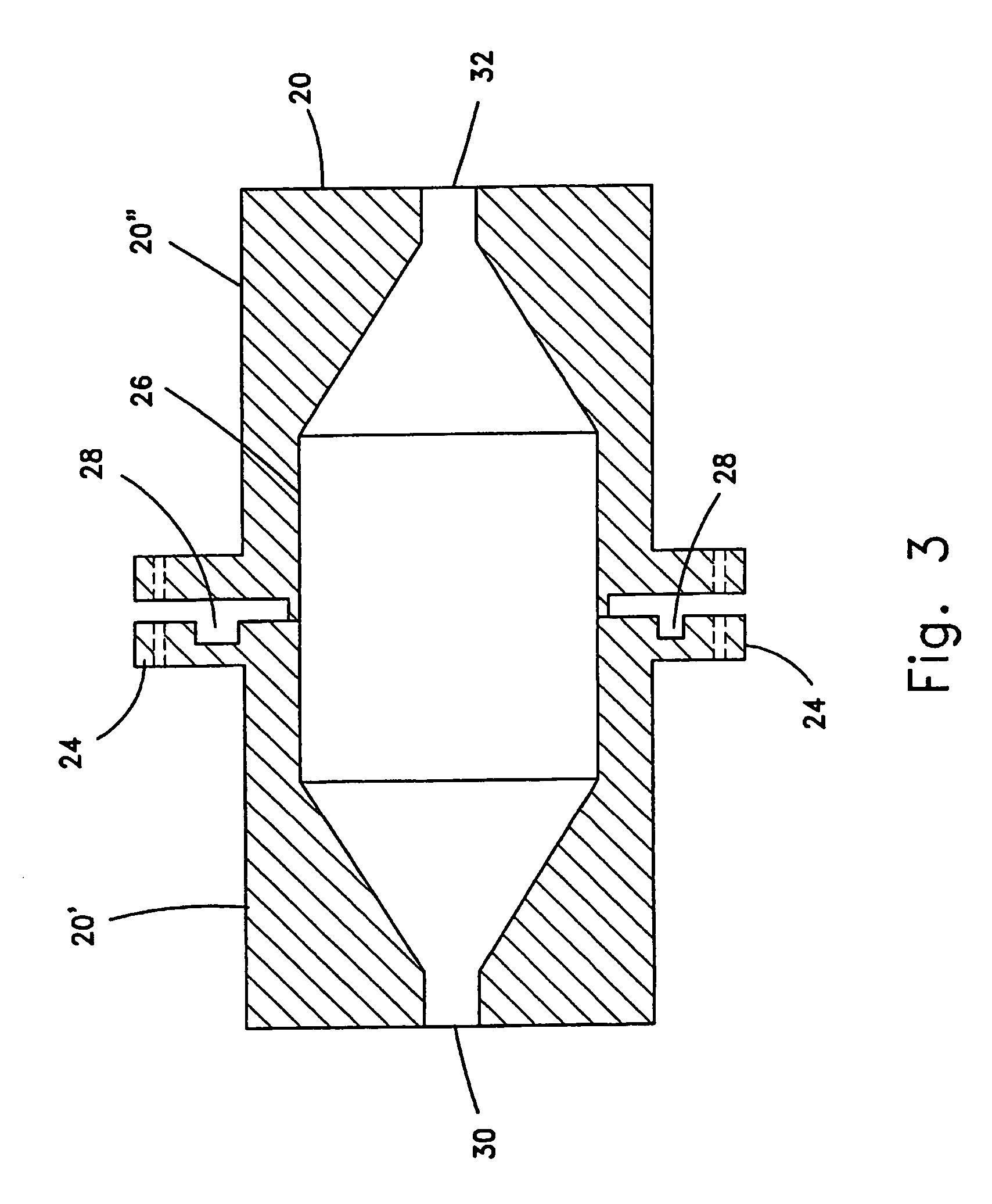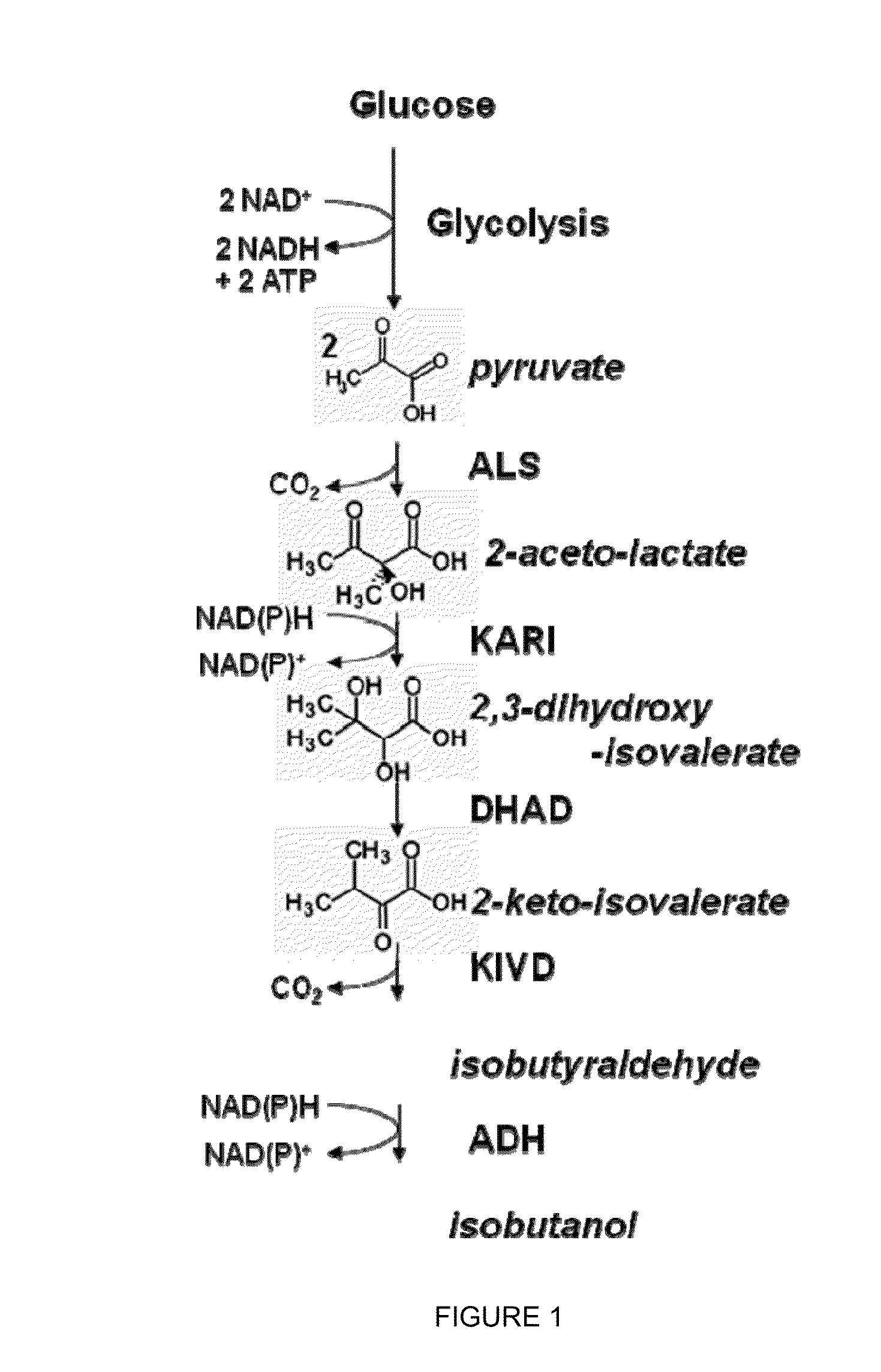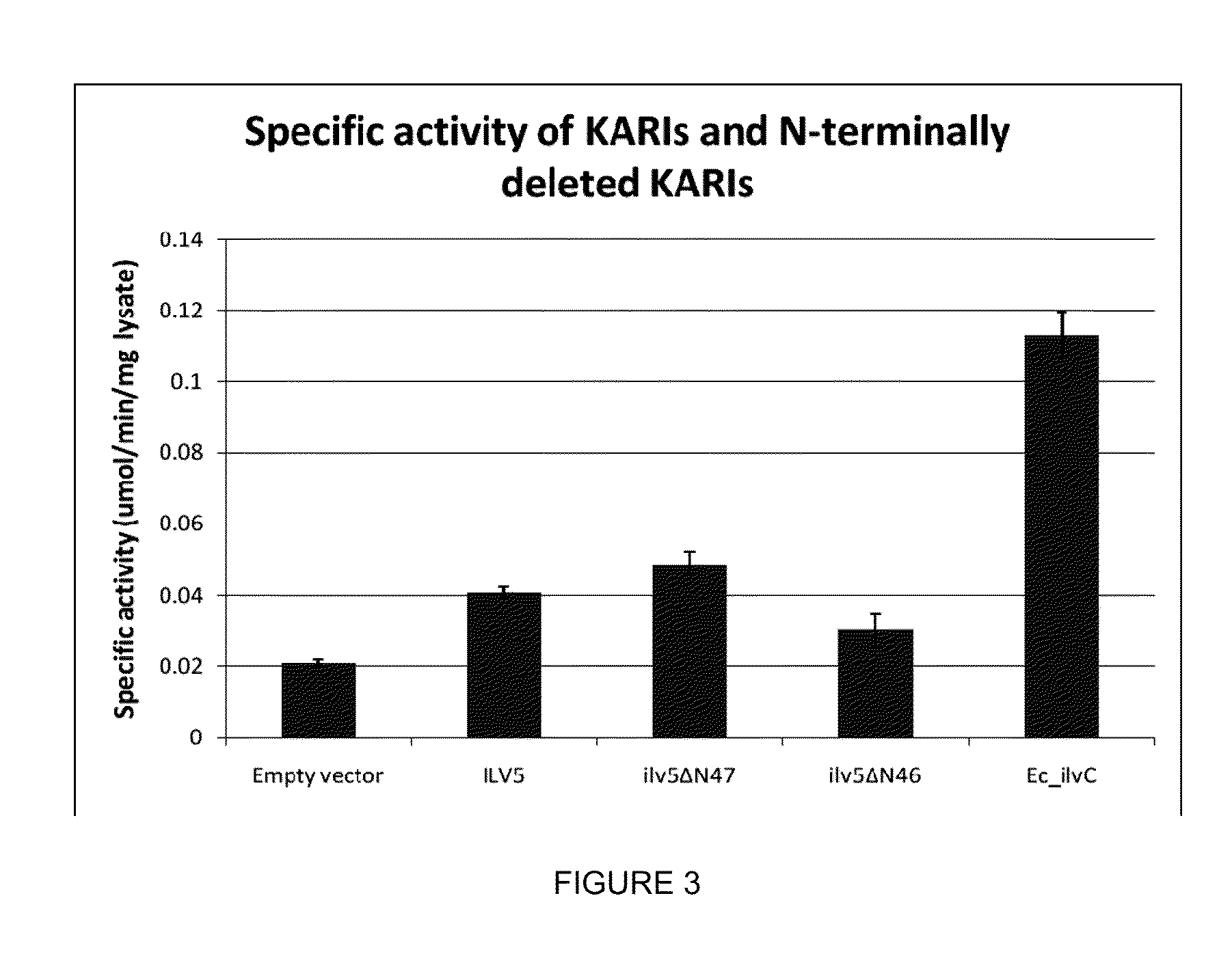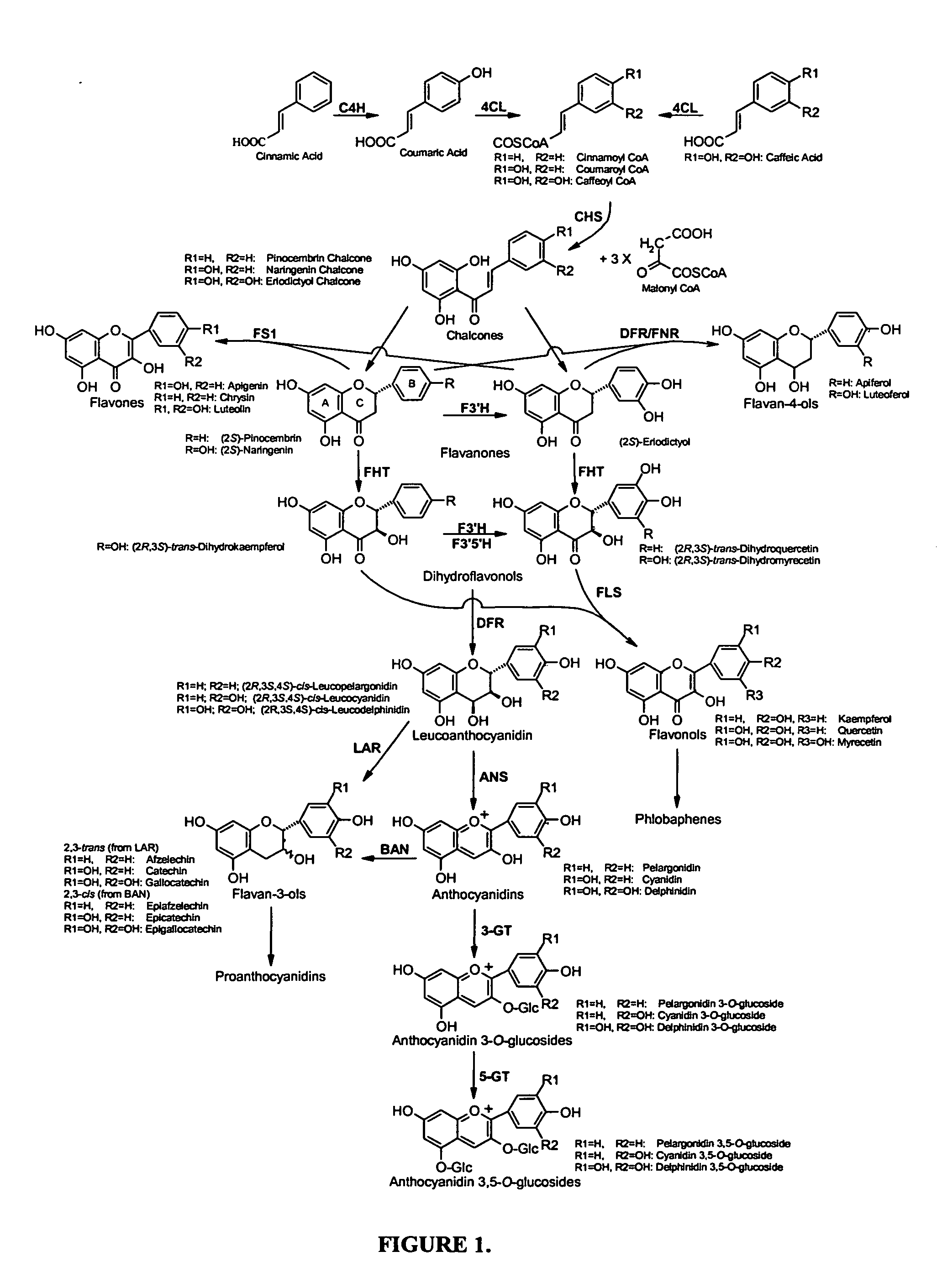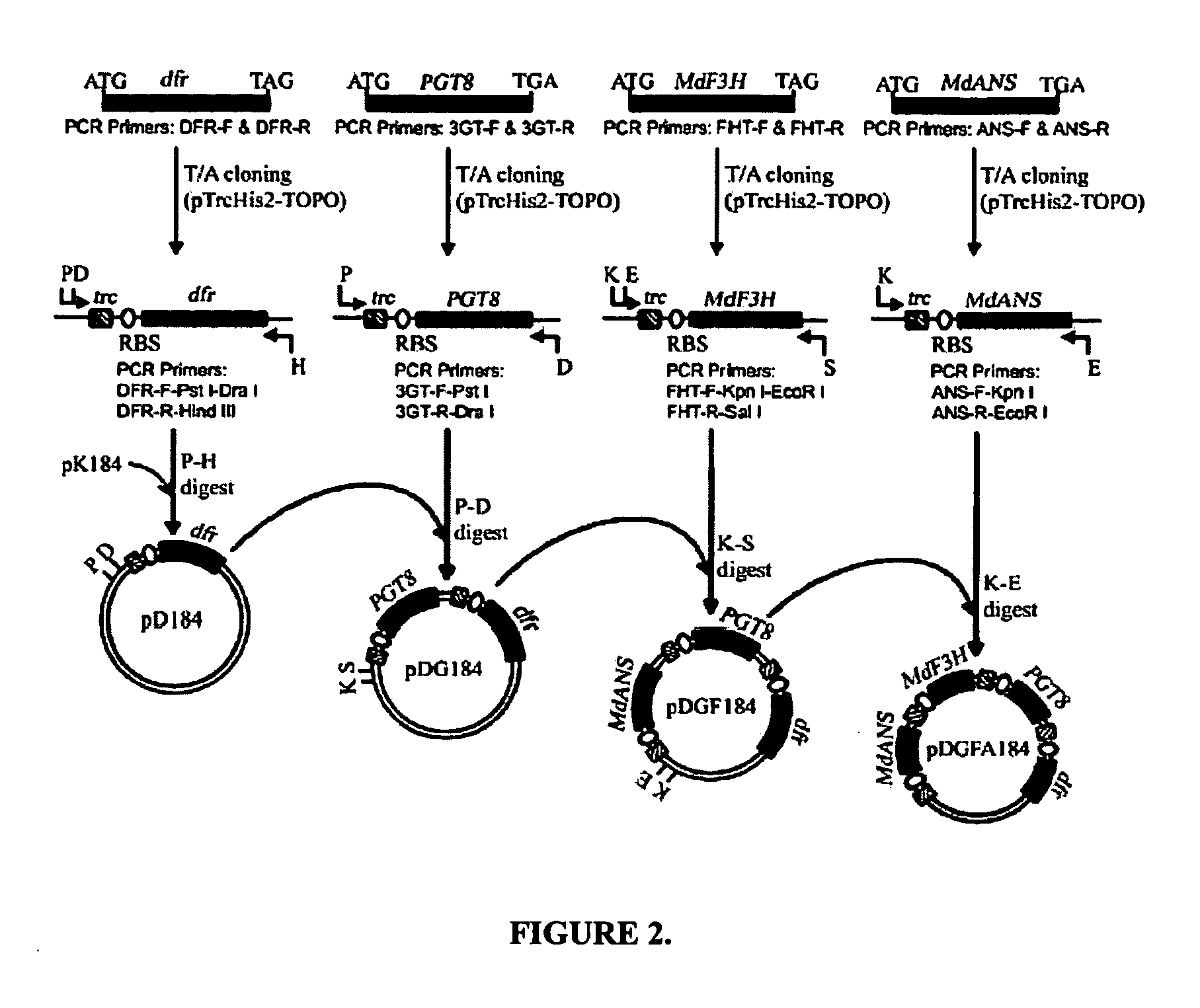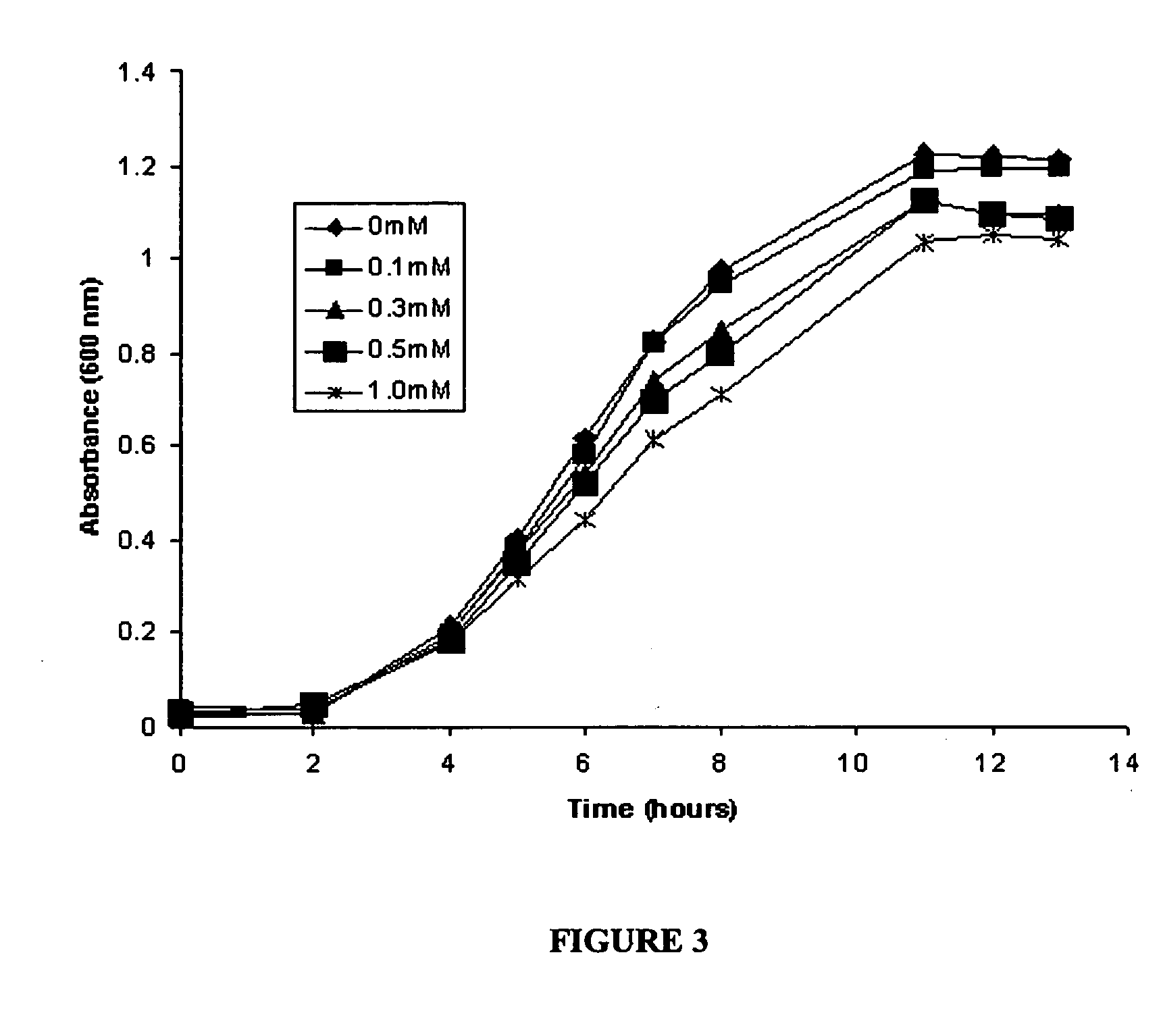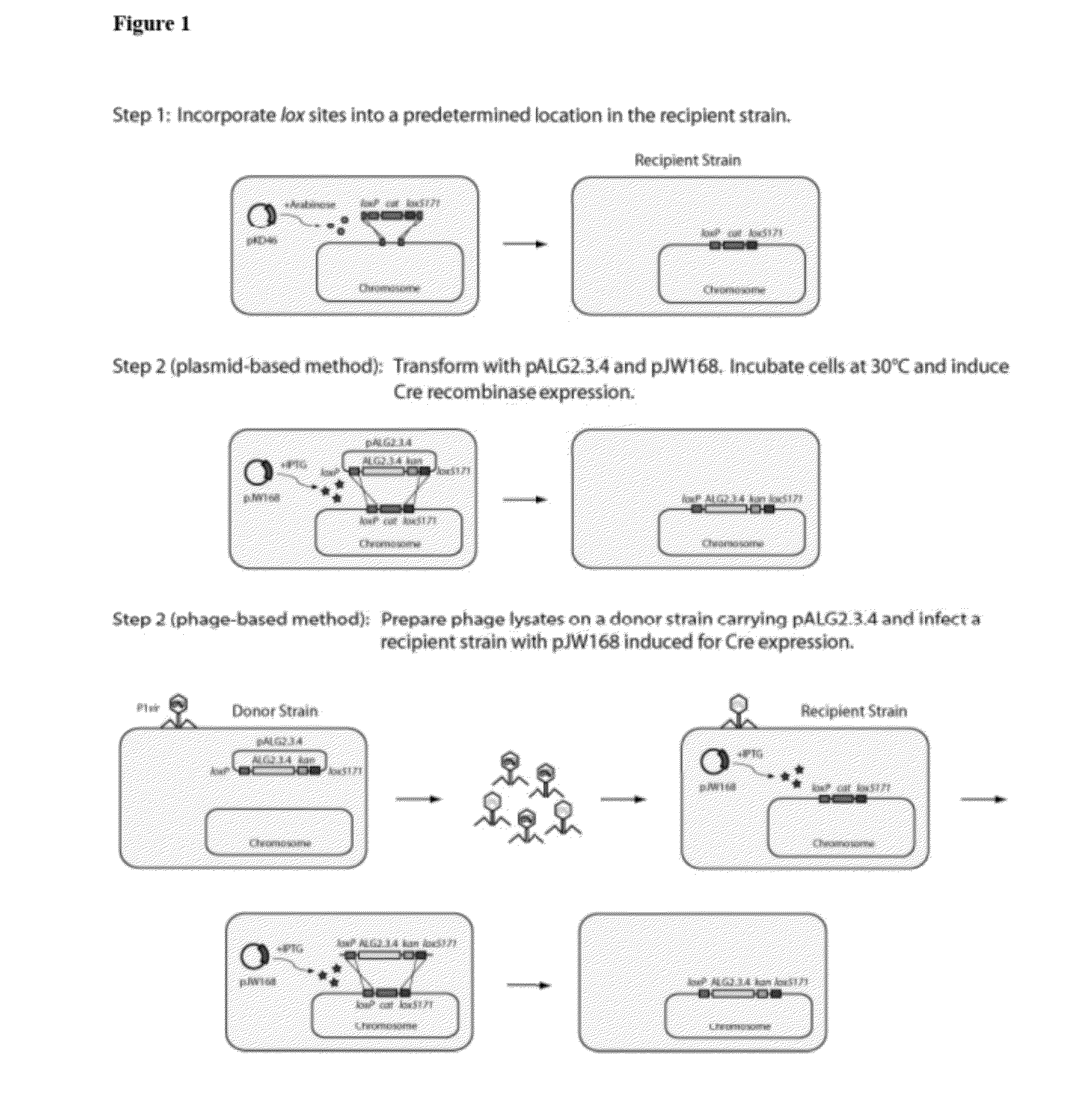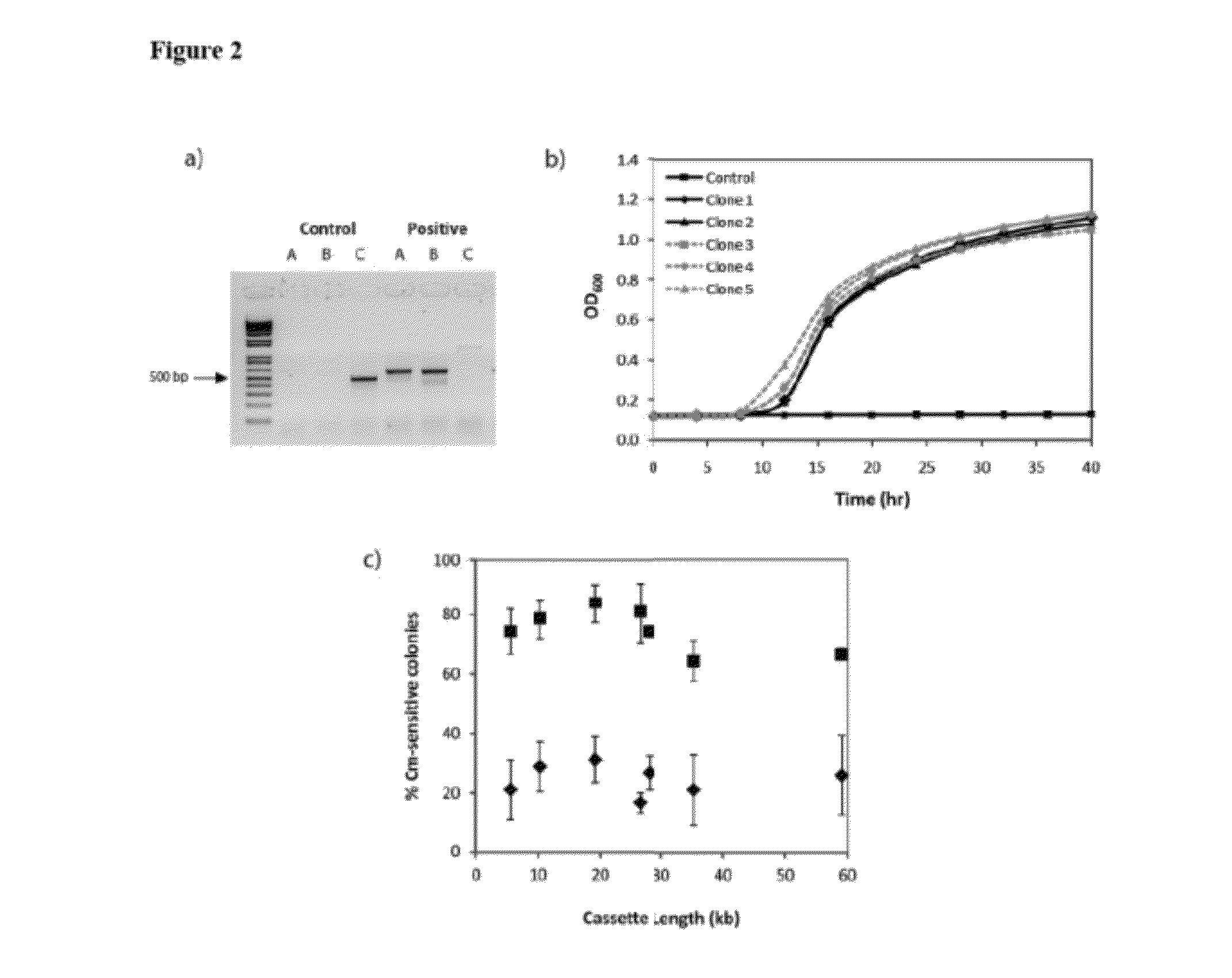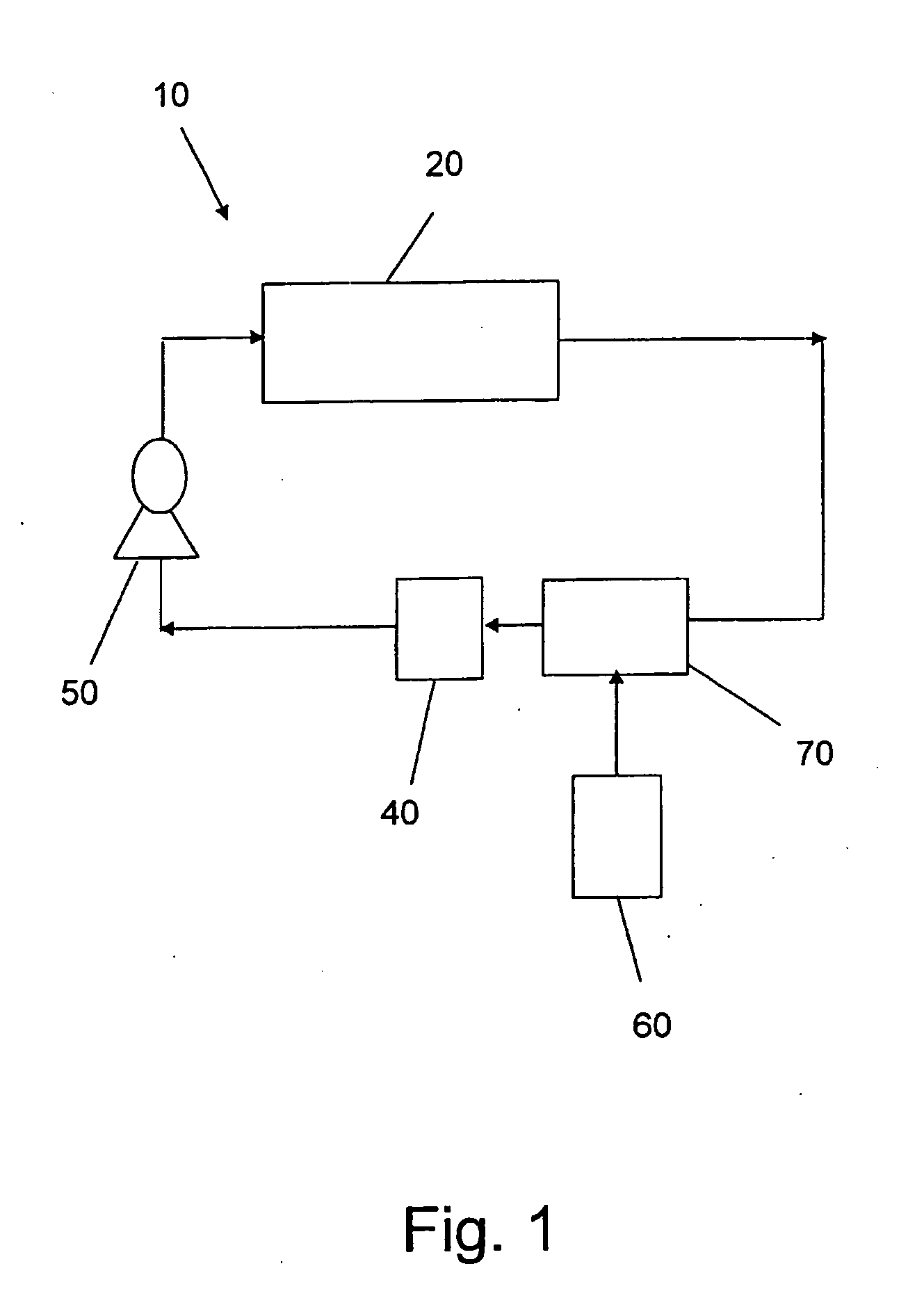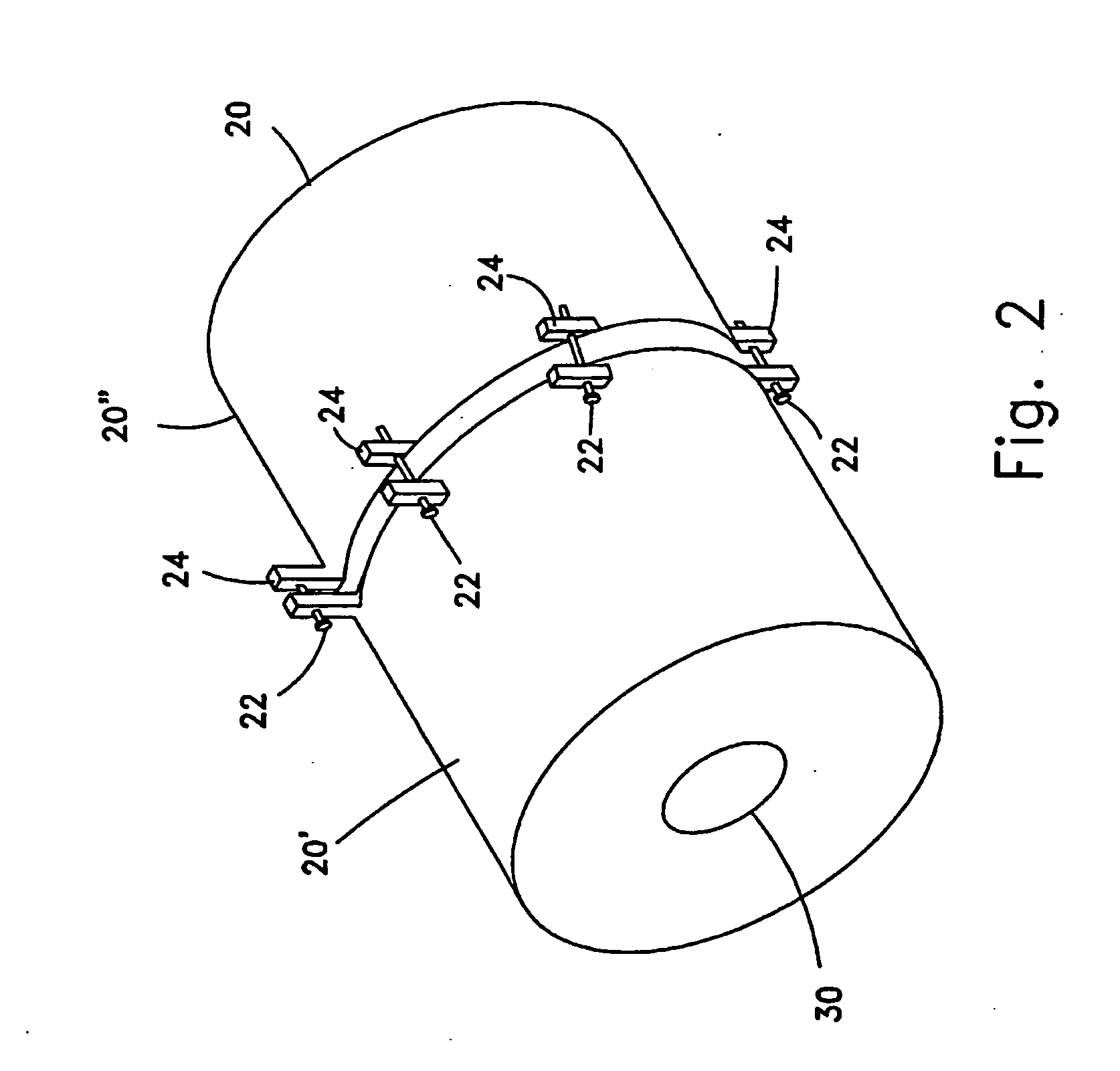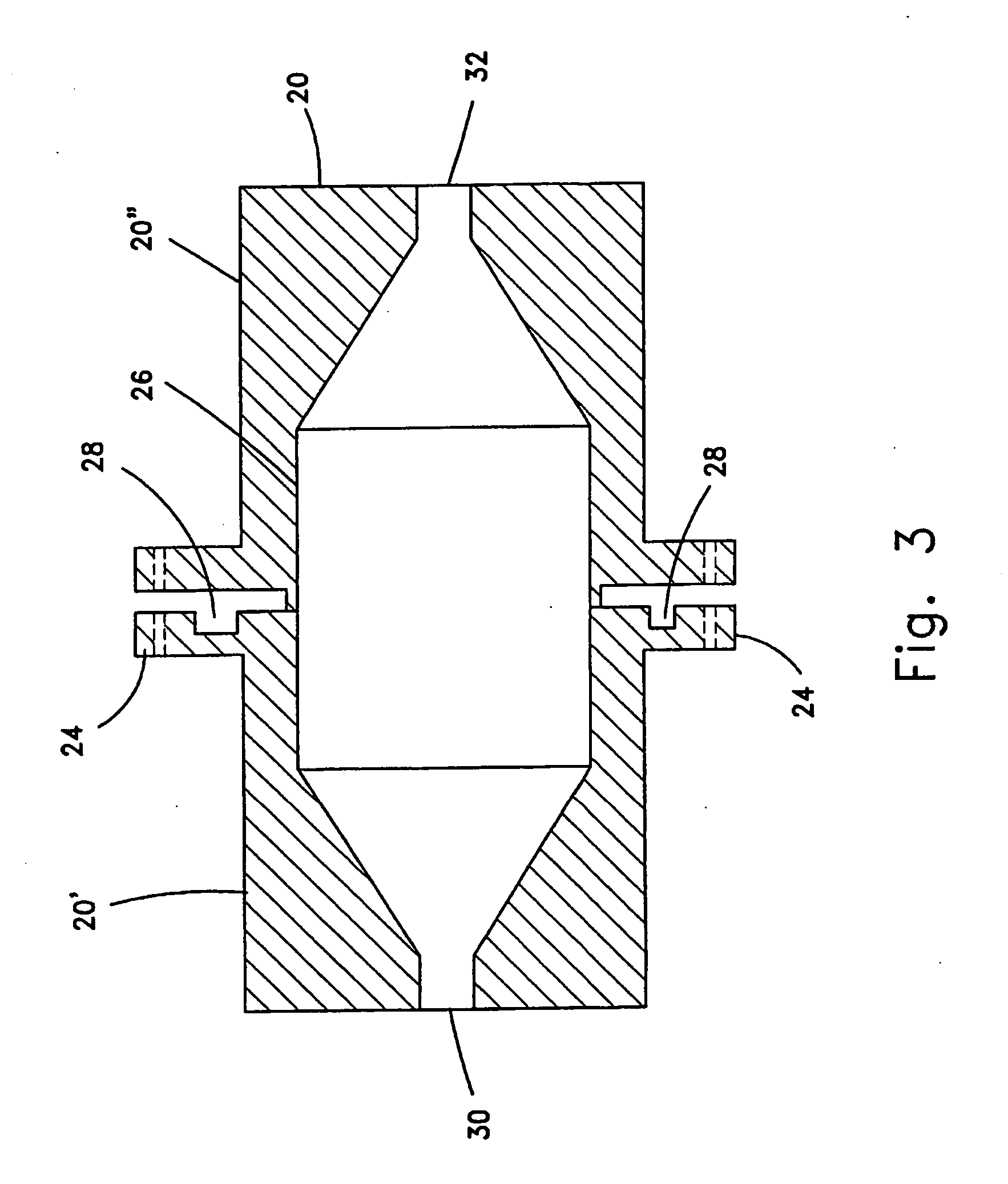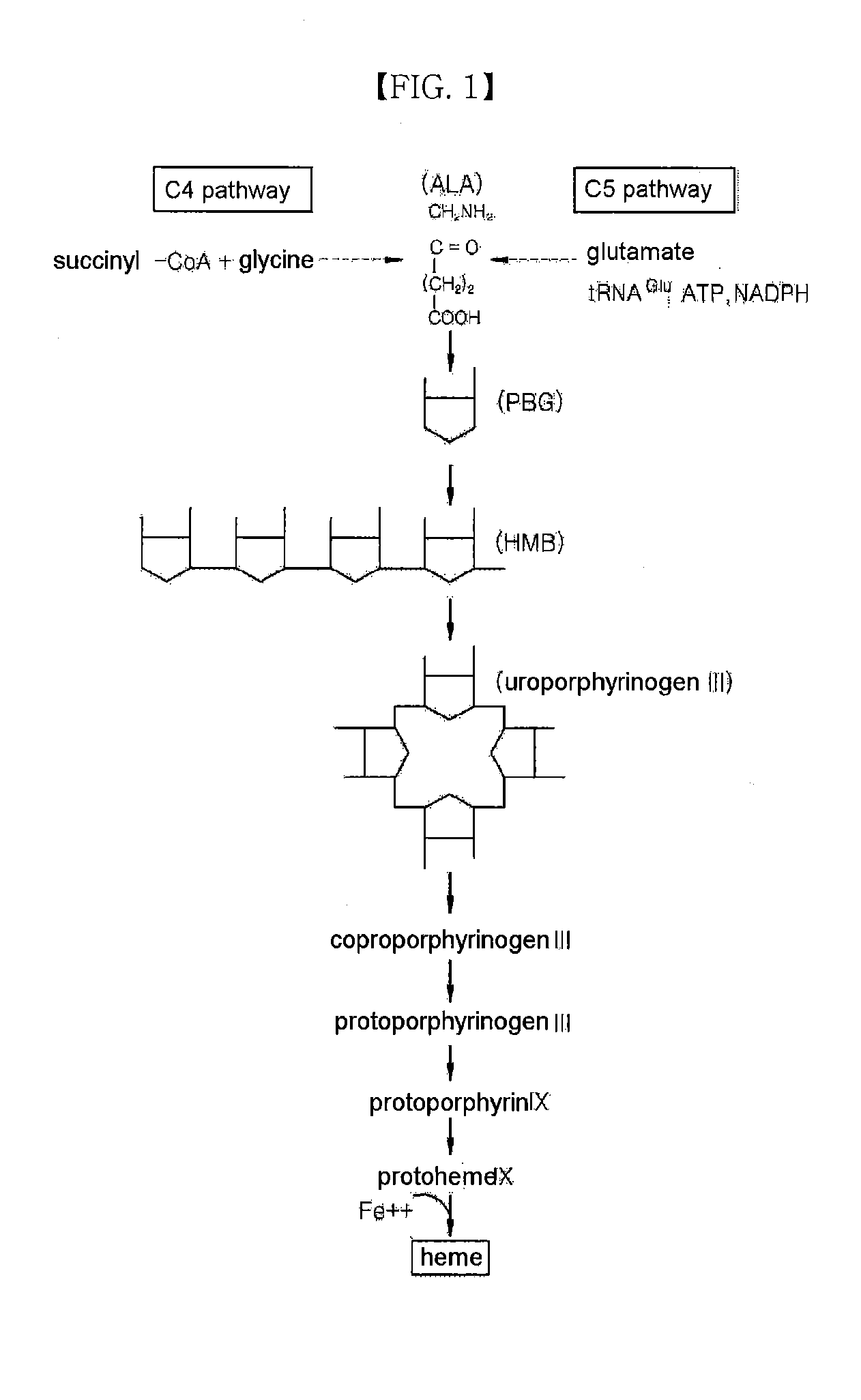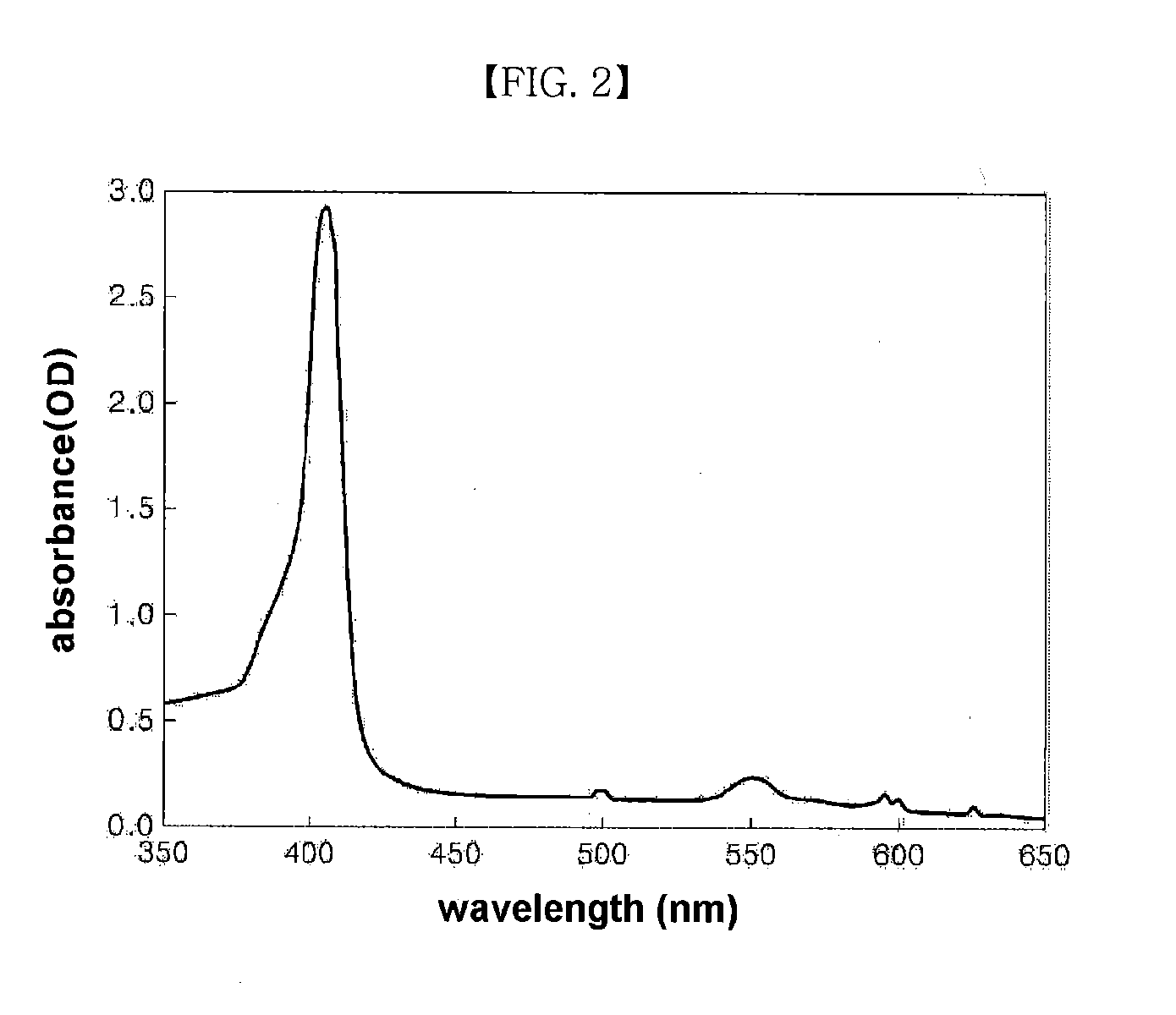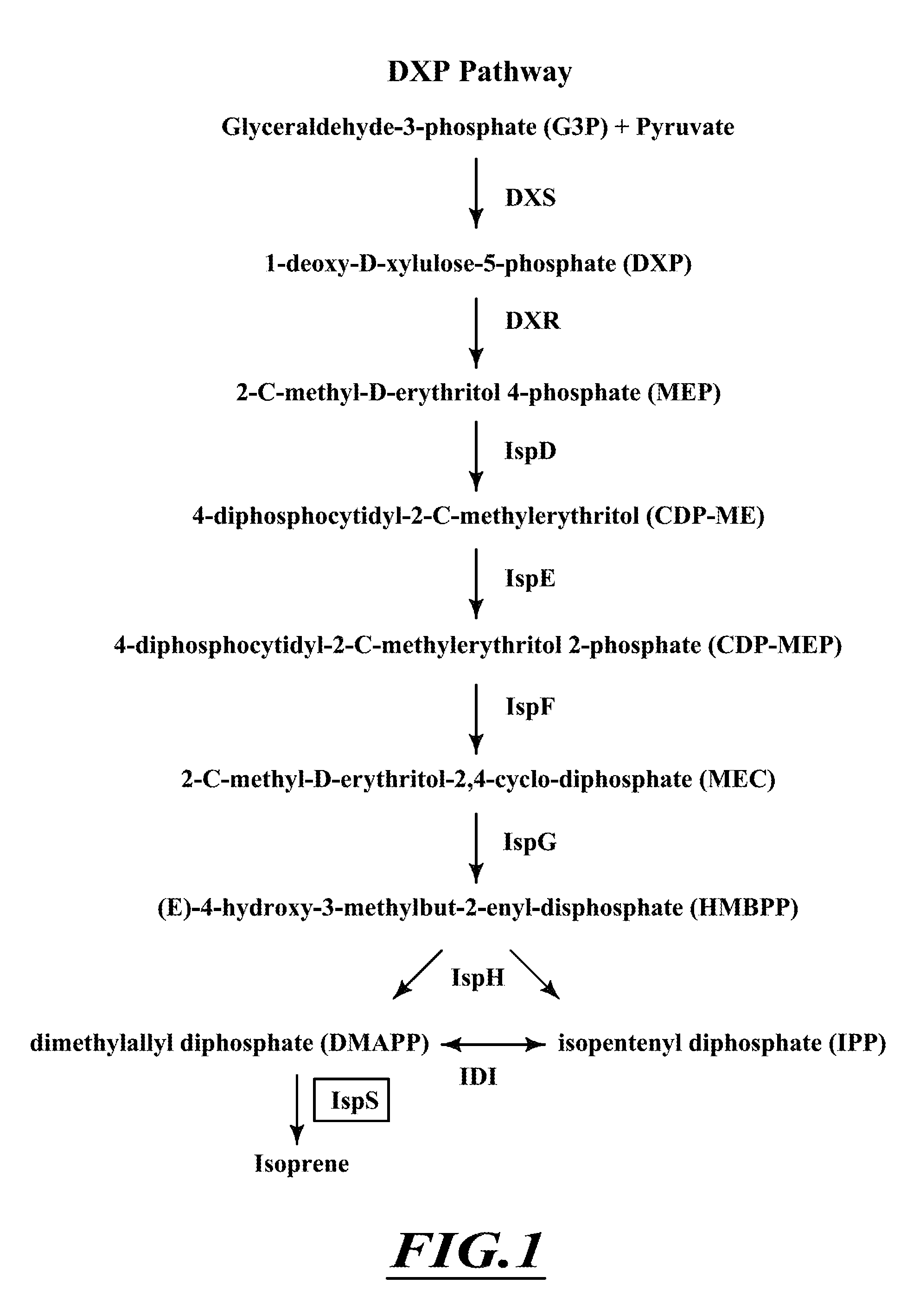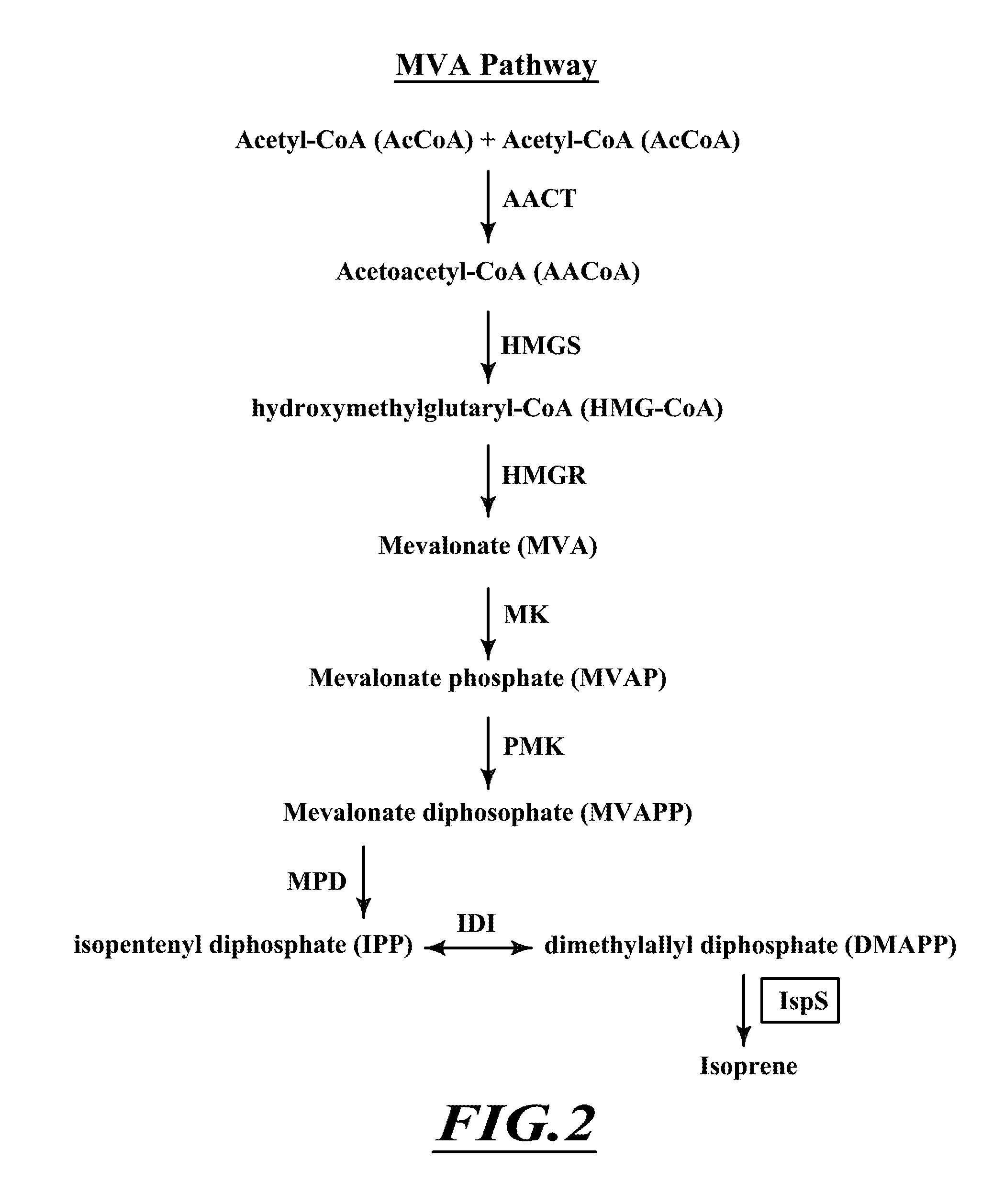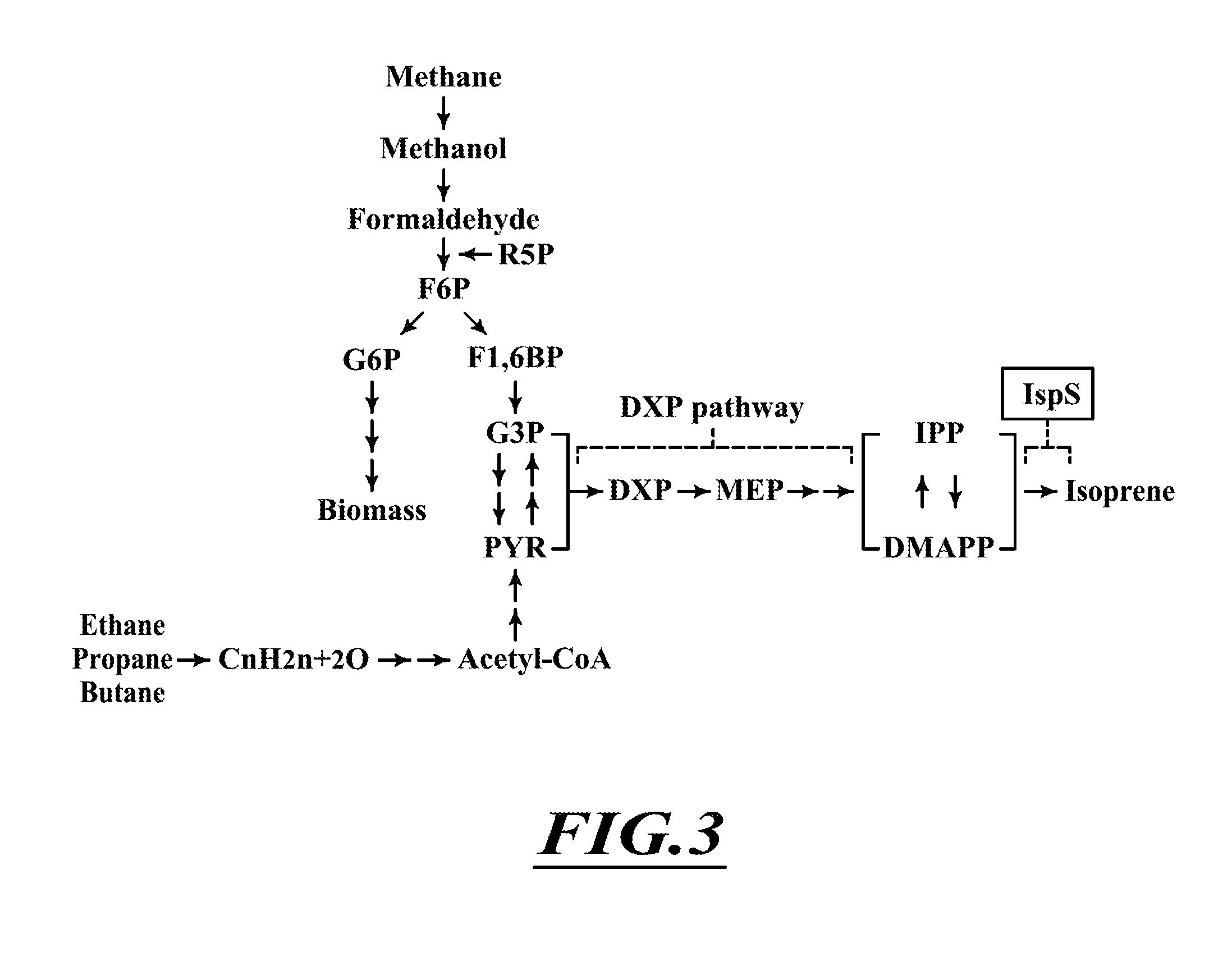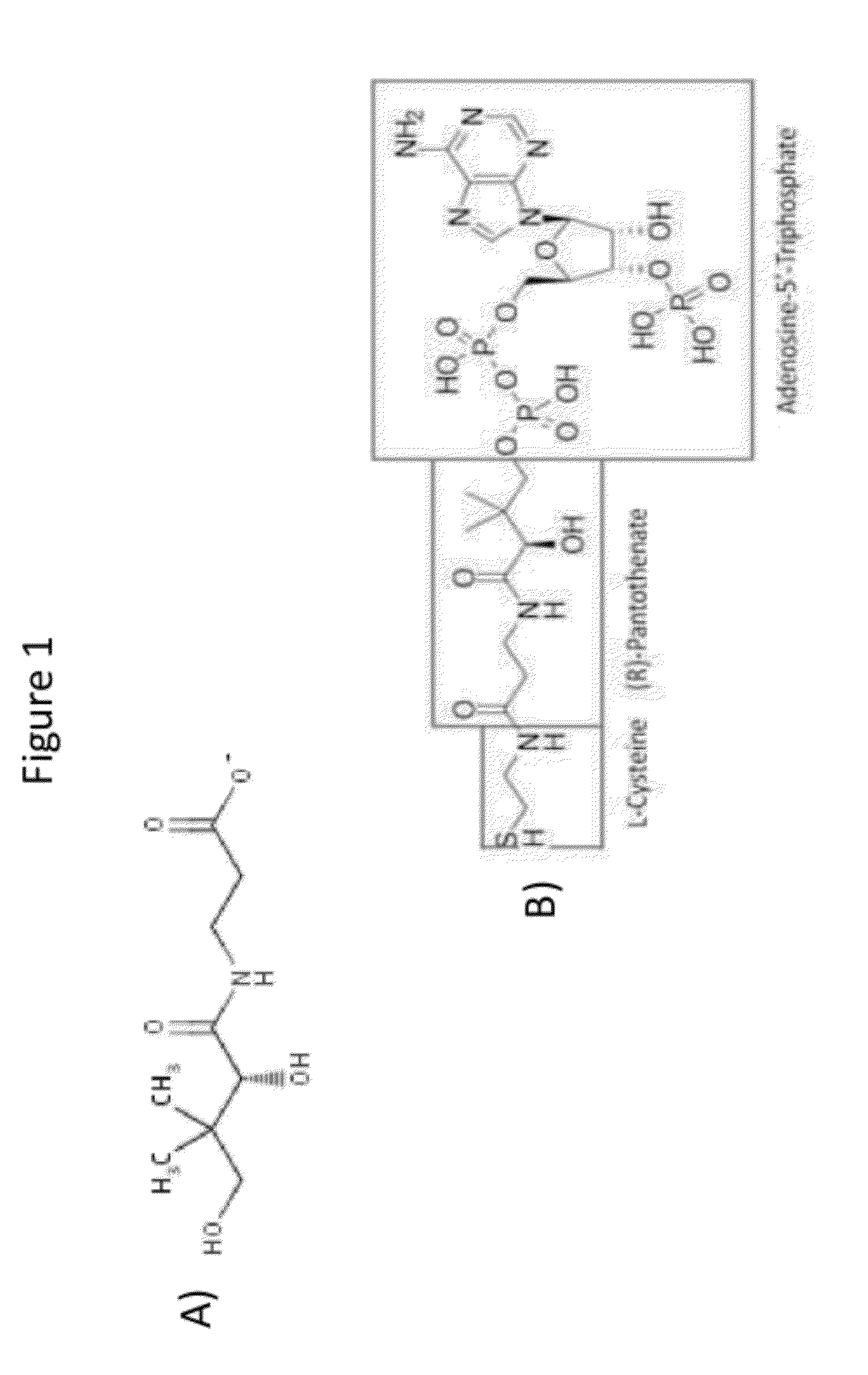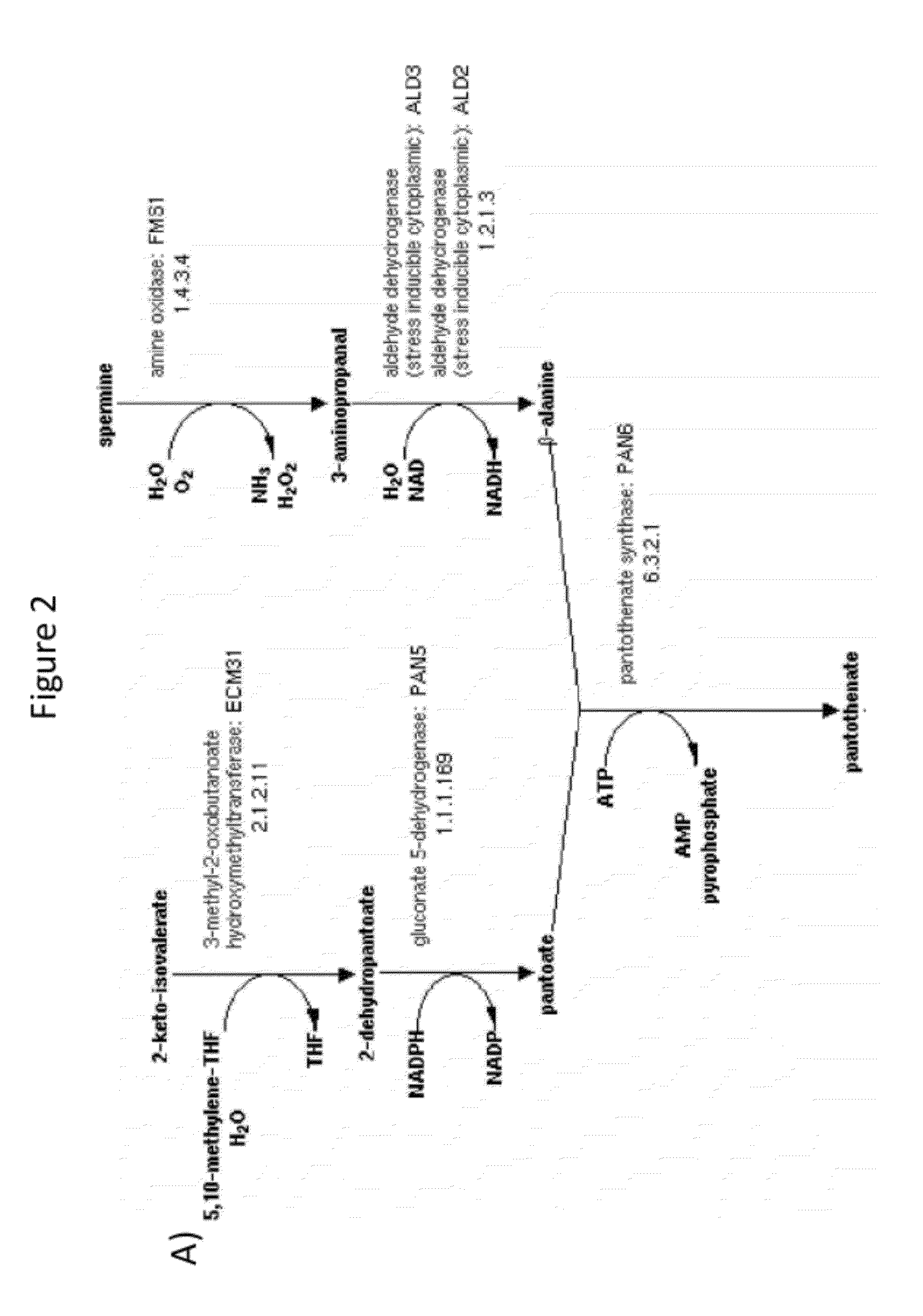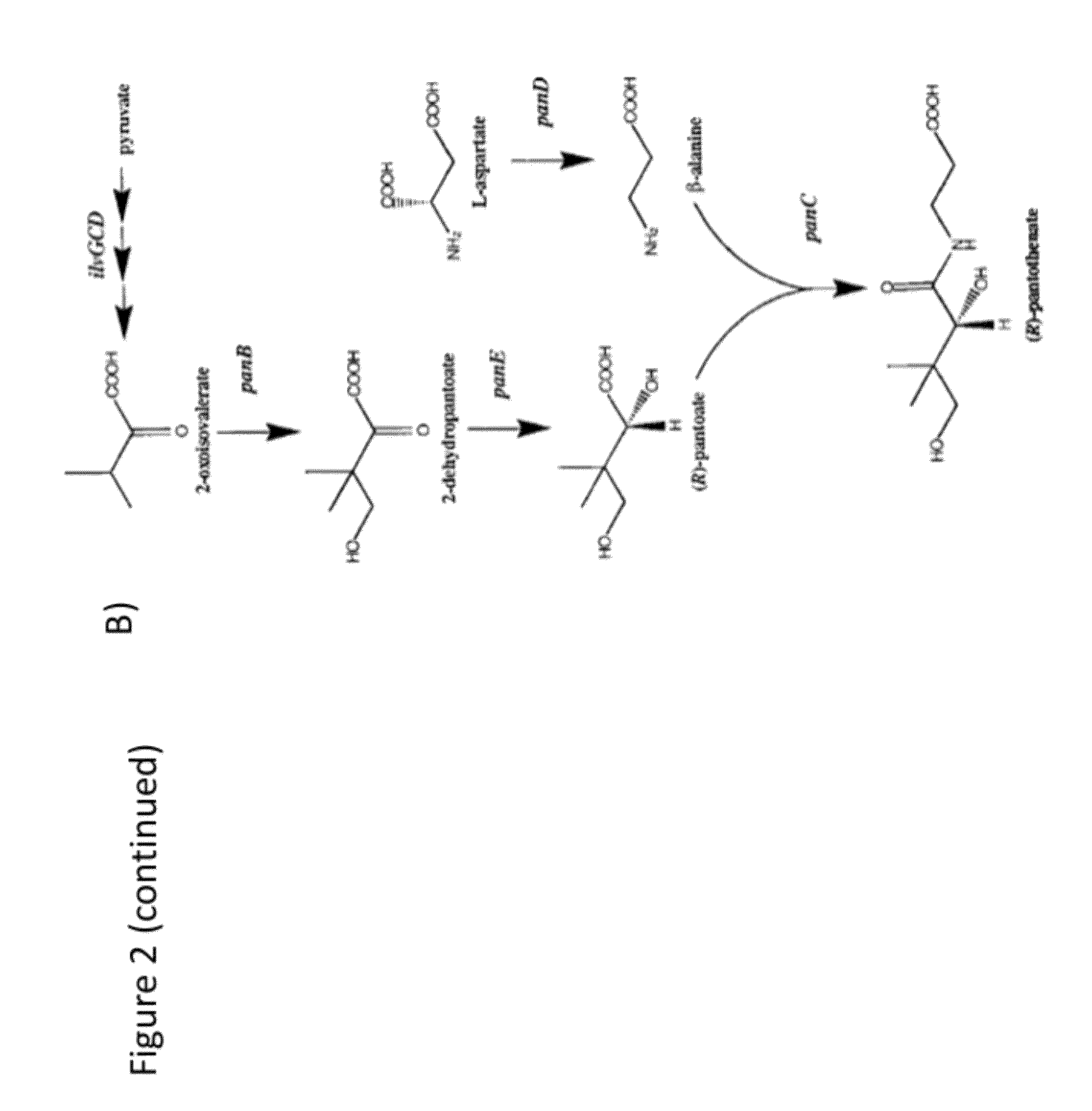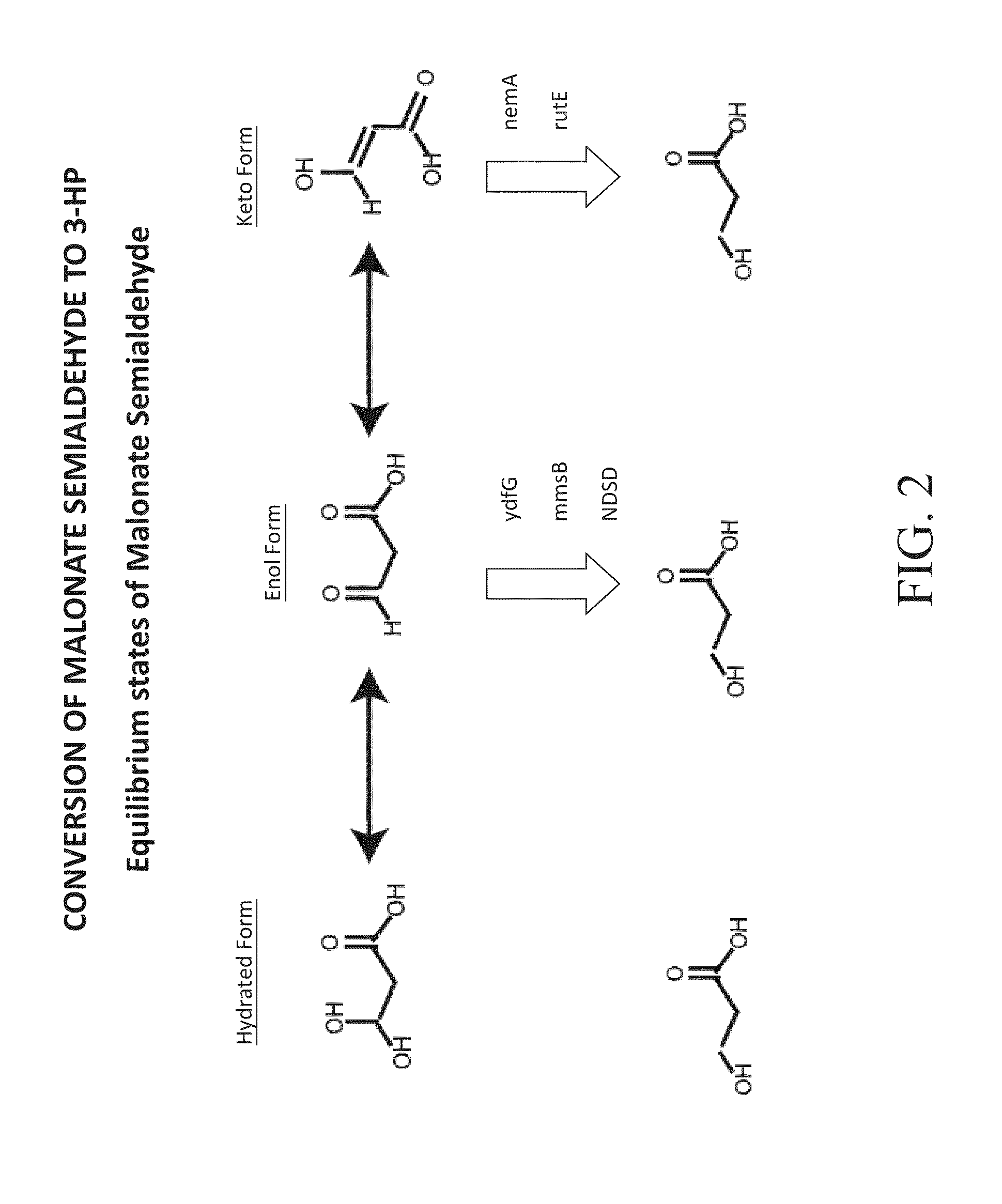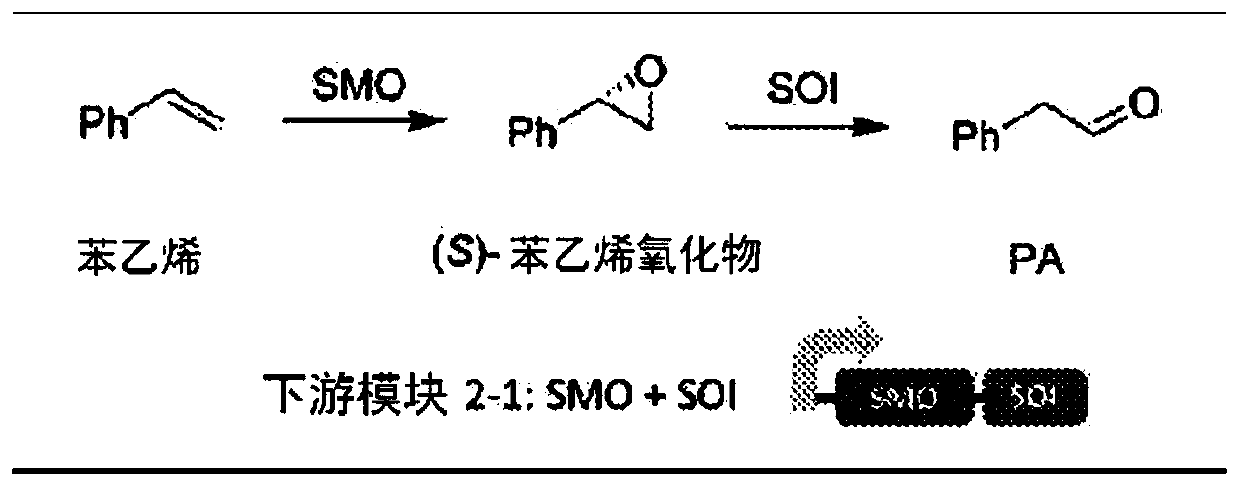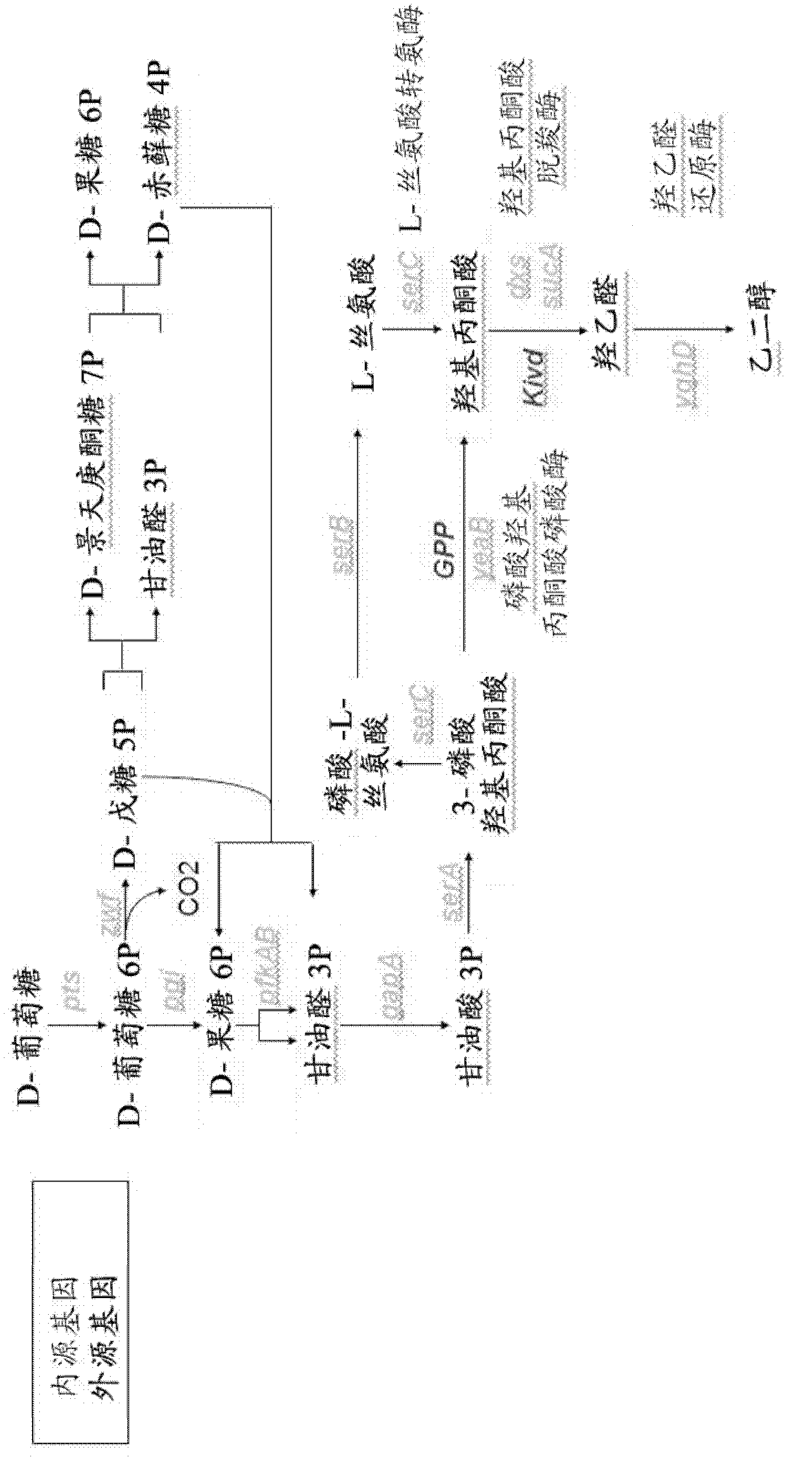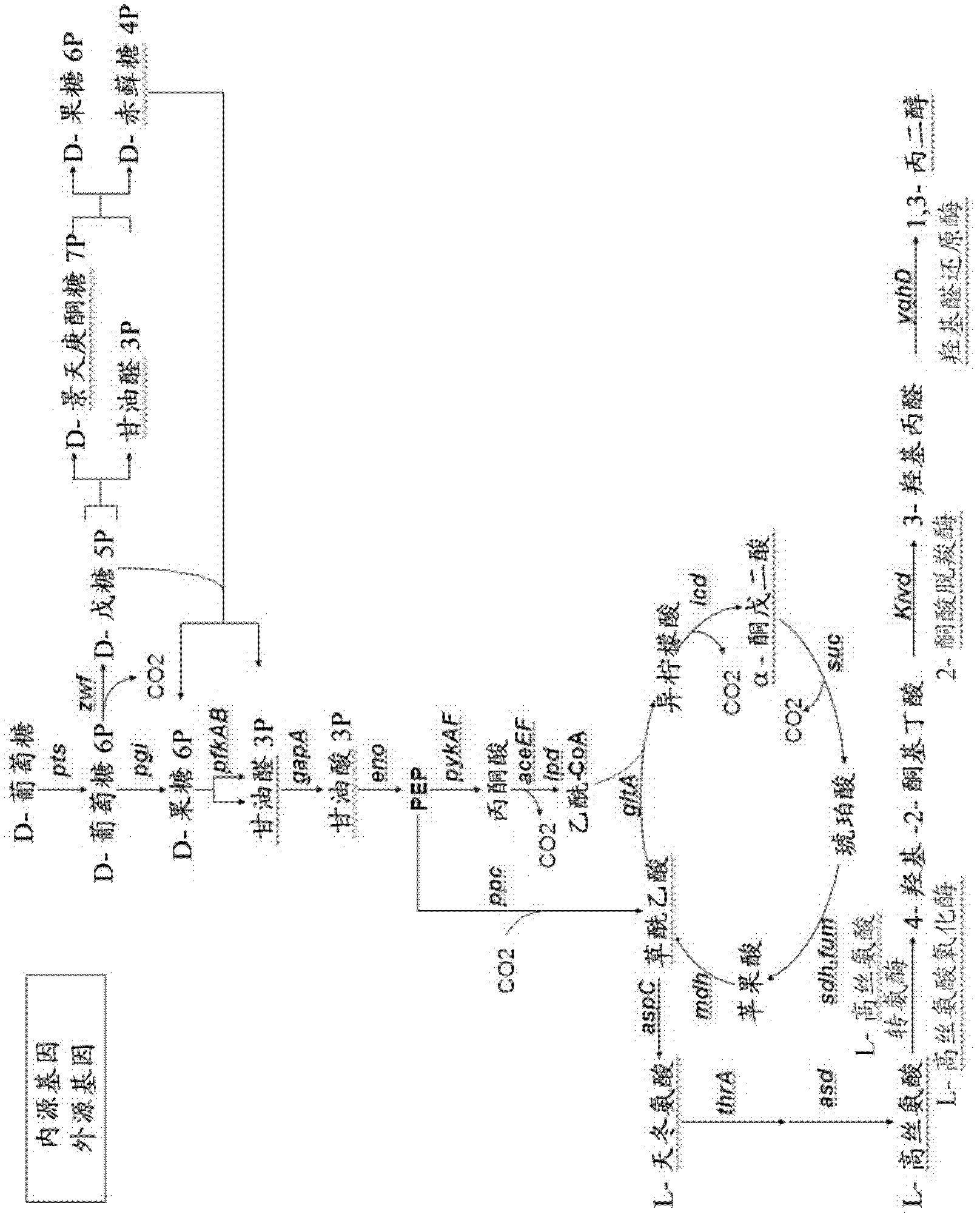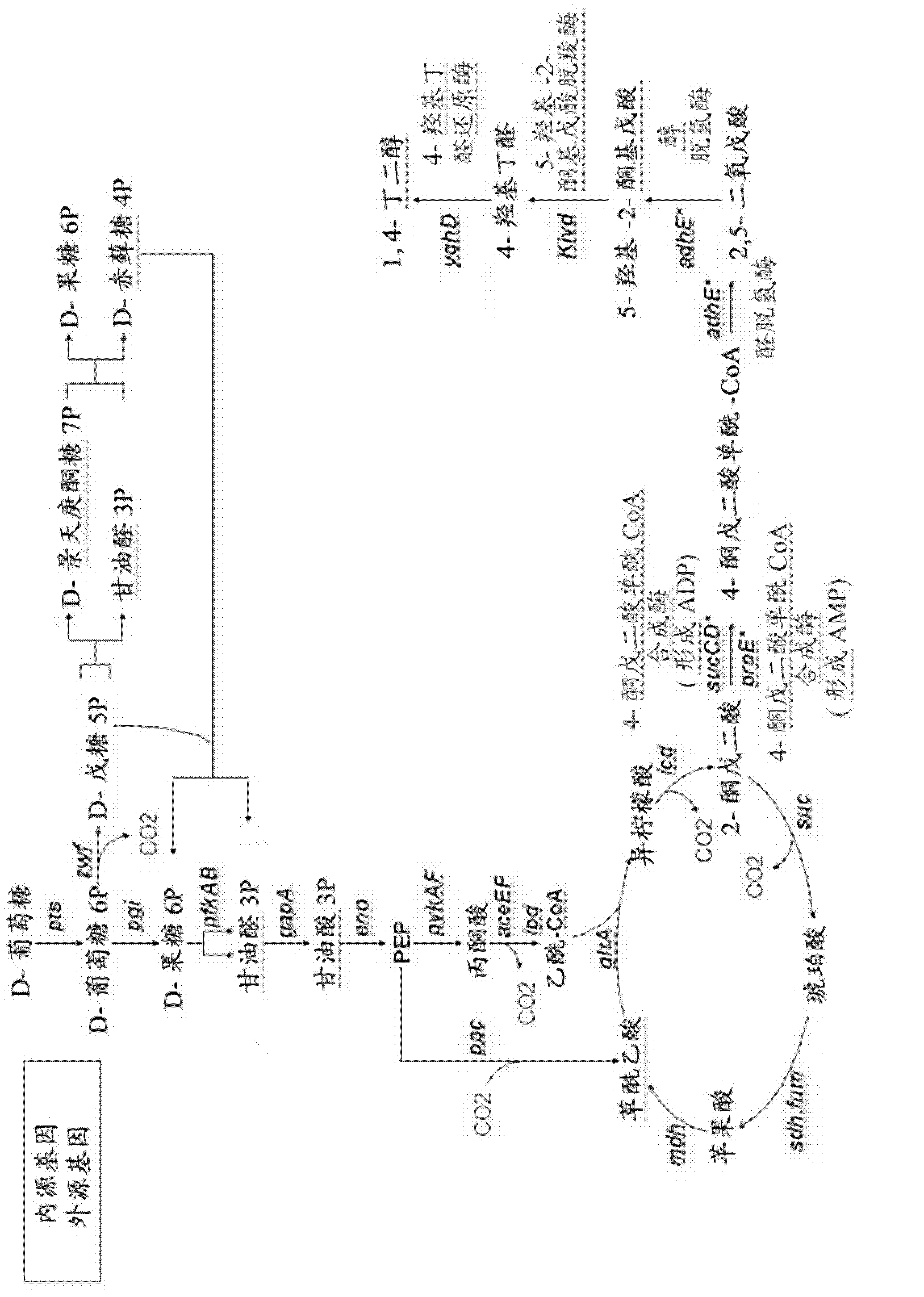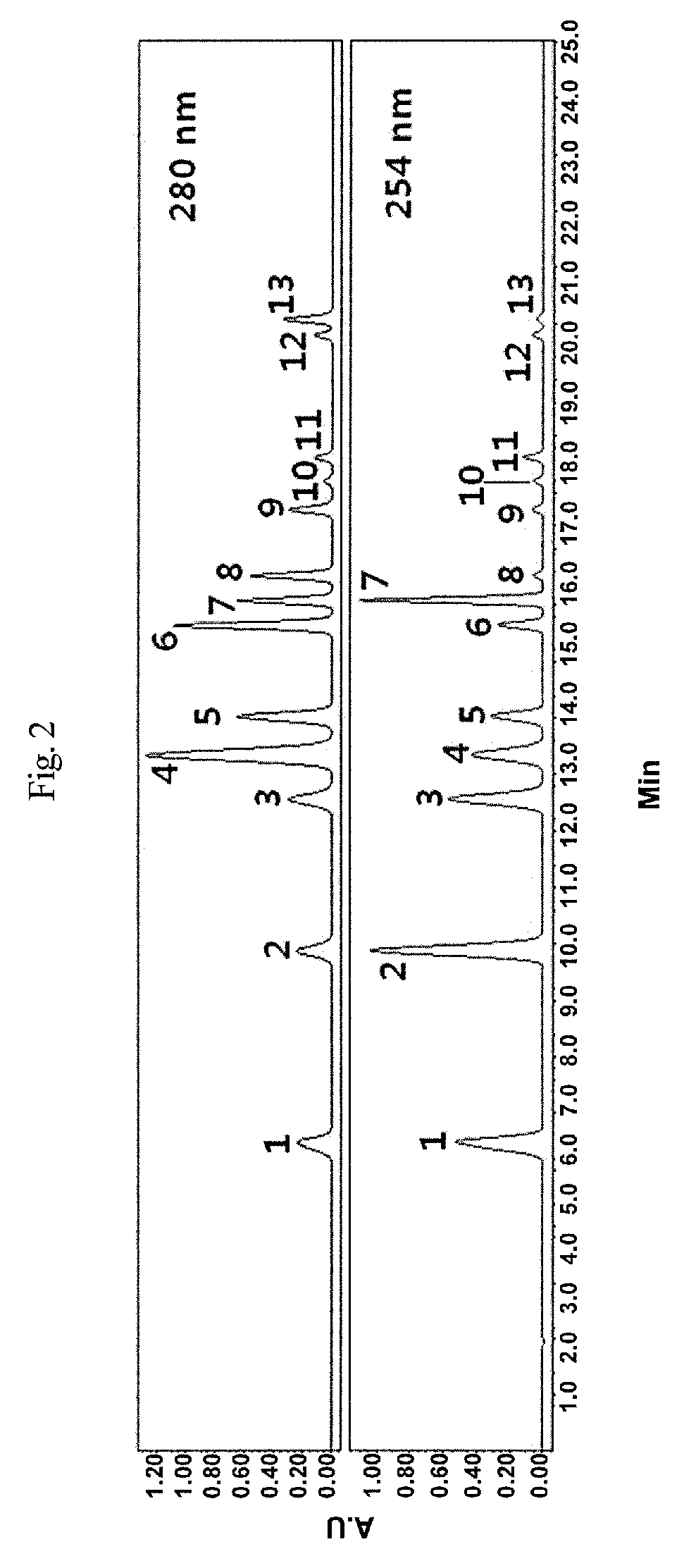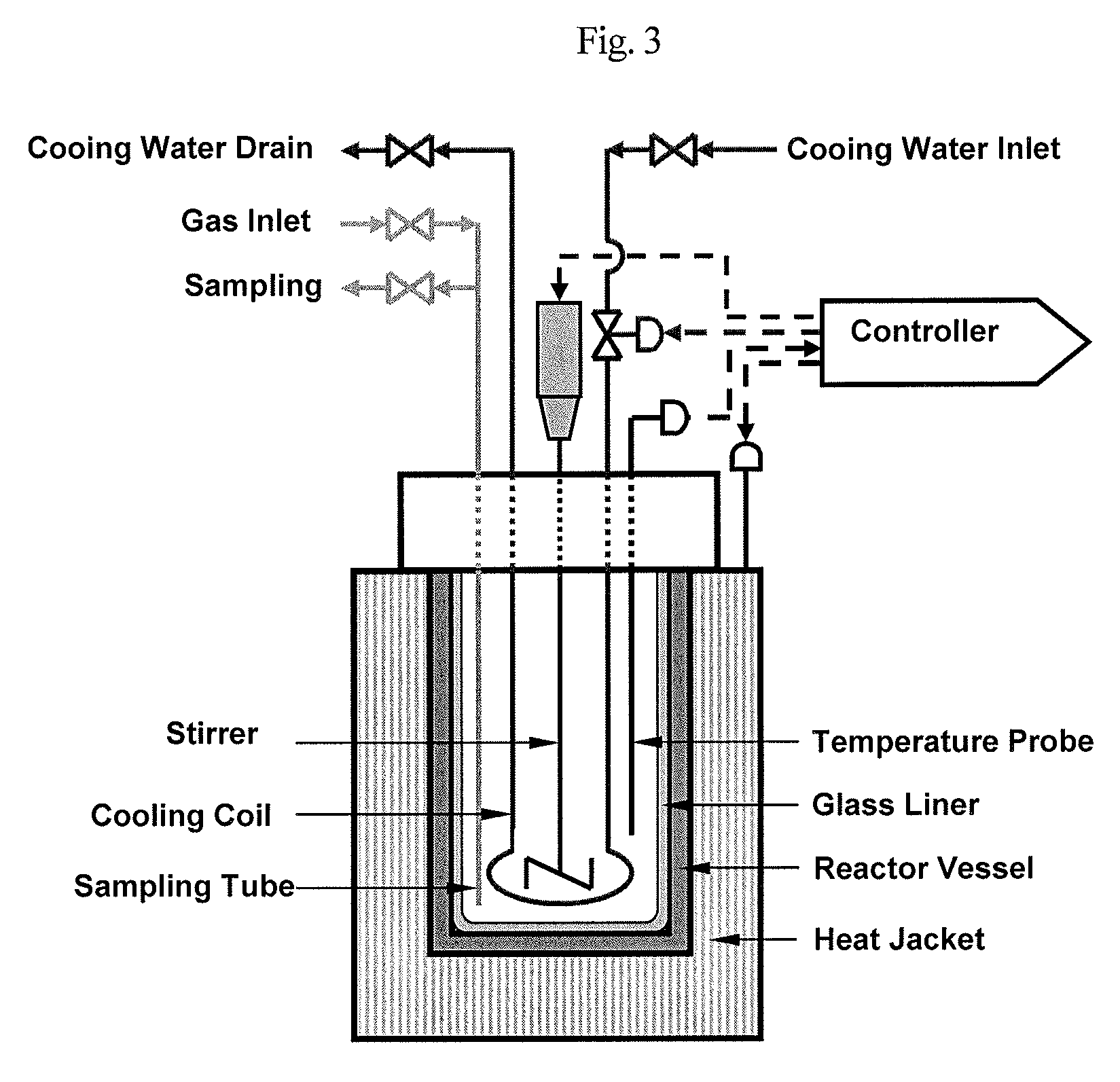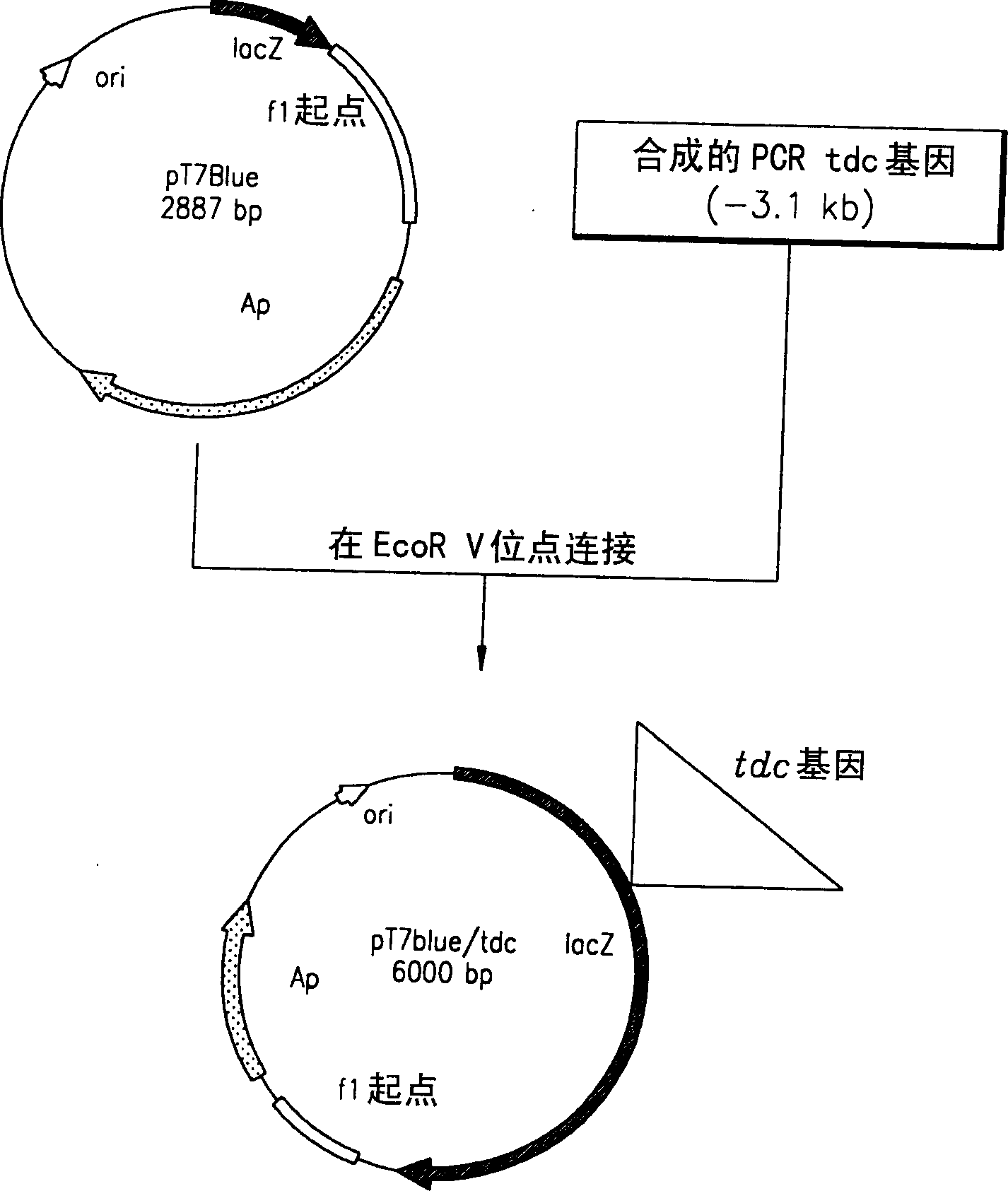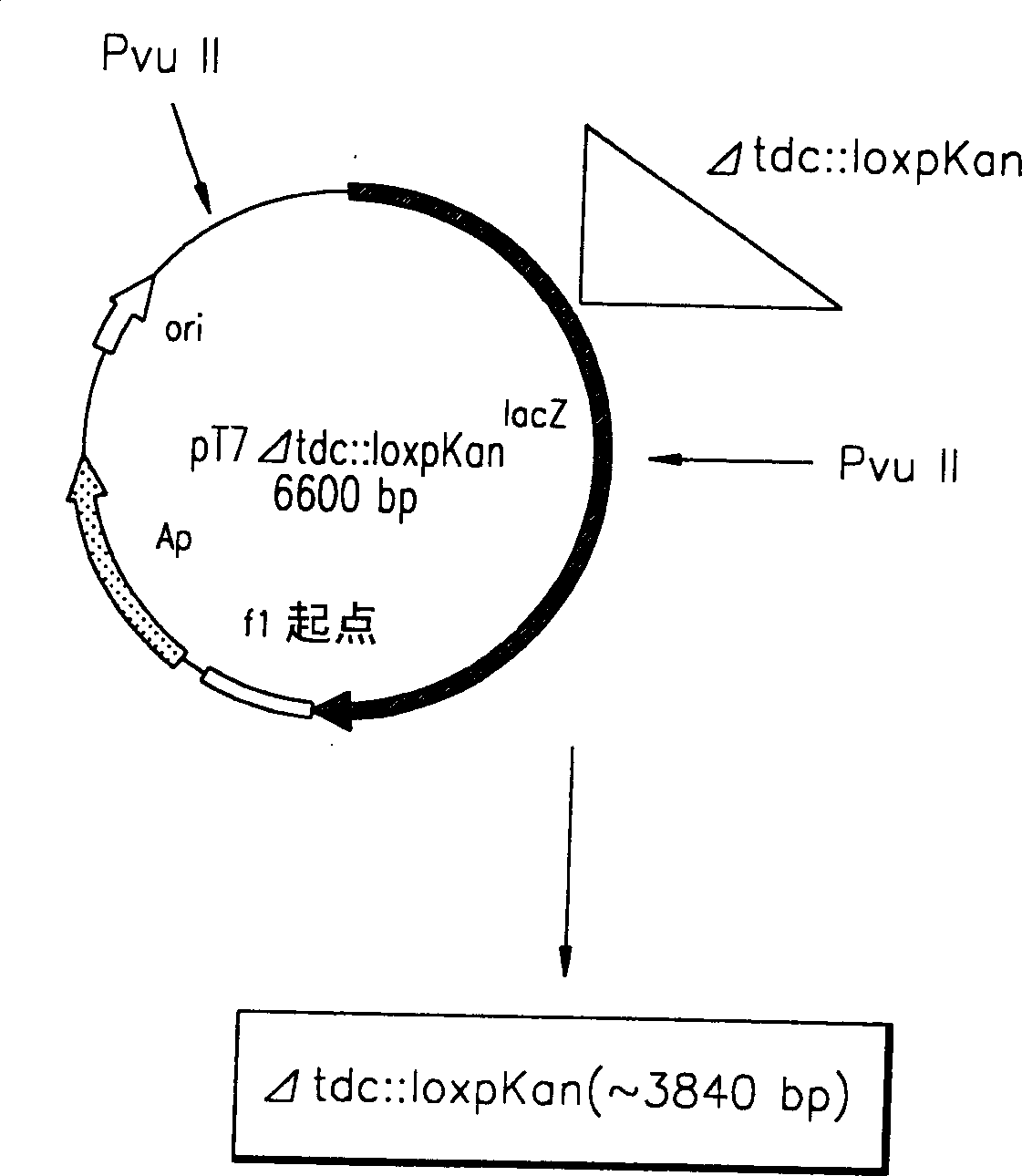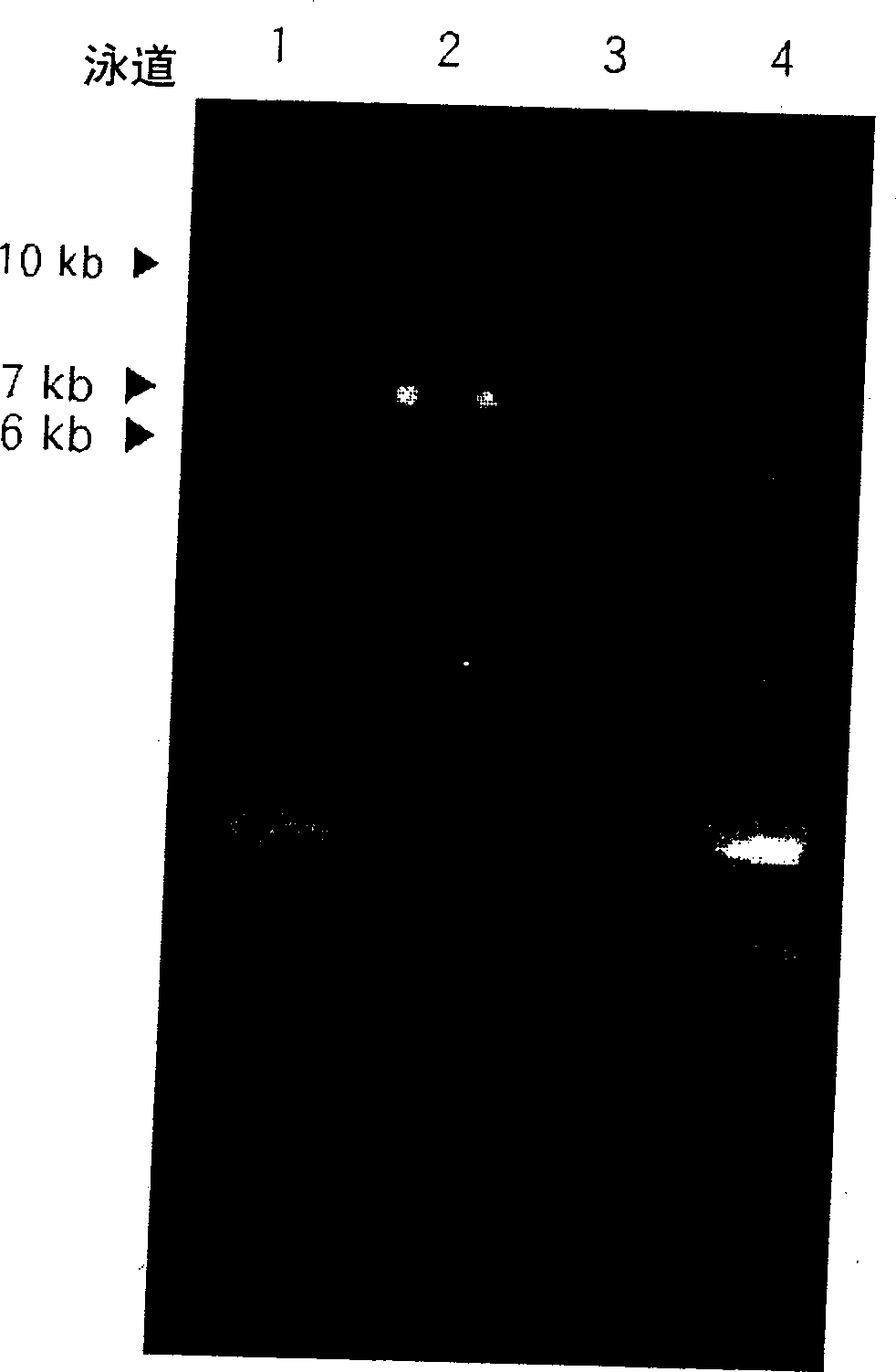Patents
Literature
Hiro is an intelligent assistant for R&D personnel, combined with Patent DNA, to facilitate innovative research.
140 results about "Bioproduction" patented technology
Efficacy Topic
Property
Owner
Technical Advancement
Application Domain
Technology Topic
Technology Field Word
Patent Country/Region
Patent Type
Patent Status
Application Year
Inventor
Bioproduction is the production of biologics-based therapeutic drugs including protein-based therapeutics, vaccines, gene therapies as well as cell therapies; drugs so complex they can only be made in living systems or indeed are a living system (cell therapies). In practice, ‘bioproduction’ has become loosely synonymous with ‘bioprocessing’ as a way to describe the manufacturing process using, cell culture, chromatography, formulation and related analytical testing for large molecule drugs, vaccines and cellular therapies. Many combinations of reactor types and culture modes are now available for use in bioproduction: e.g., pharming, rocking wave-agitated bag batch, stirred-tank or air-lift fed-batch, and hollow-fiber or spin-filter perfusion. No single production format is inherently superior; that determination depends on many manufacturing capabilities, requirements, and goals. New cell lines, concerns about product quality and safety, emerging biosimilars, worldwide demand for vaccines, and cellular medicine drive new innovative solutions in bioproduction.
Process for the biological production of 1,3-propanediol with high yield
The present invention provides a microorganism useful for biologically producing 1,3-propanediol from a fermentable carbon source at higher yield than was previously known. The complexity of the cofactor requirements necessitates the use of a whole cell catalyst for an industrial process that utilizes this reaction sequence to produce 1,3-propanediol. The invention provides a microorganism with disruptions in specified genes and alterations in the expression levels of specified genes that is useful in a higher yielding process to produce 1,3-propanediol.
Owner:NUTRITION & BIOSCIENCES USA 4 INC +1
Method for redesign of microbial production systems
ActiveUS20050079482A1Solve complexityIncreased production objectiveMicrobiological testing/measurementProteomicsMicroorganismBiological body
Owner:PENN STATE RES FOUND
Bioproduction of para-hydroxycinnamic acid
InactiveUS6368837B1Increased substrate specificityEnhanced TAL activityMicroorganism based processesOxidoreductasesEscherichia coliTyrosine
Owner:DUPONT US HLDG LLC
Bioproduction of para-hydroxycinnamic acid
The present invention provides several methods for biological production of para-hydroxycinnamic acid (PHCA). The invention is also directed to the discovery of new fungi and bacteria that possess the ability to convert cinnamate to PHCA. The invention relates to developing of a new biocatalyst for conversion of glucose to PHCA by incorporation of the wild type PAL from the yeast Rhodotorula glutinis into E. coli underlining the ability of the wildtype PAL to convert tyrosine to PHCA. The invention is also directed to developing a new biocatalyst for conversion of glucose to PHCA by incorporation of the wildtype PAL from the yeast Rhodotorula glutinis plus the plant cytochrome P-450 and the cytochrome P-450 reductase into E. coli. In yet another embodiment, the present invention provides for the developing of a new biocatalyst through mutagenesis of the wild type yeast PAL which possesses enhanced tyrosine ammonia-lyase (TAL) activity.
Owner:GATENBY ANTHONY A +4
Method of in situ bioproduction and composition of bacterial cellulose nanocomposites
Provided are novel methods for making cellulose nanocomposites, comprising biosynthesis of cellulose fibrils in situ using a growth medium comprising a polymer matrix material, under conditions suitable to provide for dispersion of the fibril throughout the growth medium as the fibrils are being formed to provide a cellulose nanocomposite material or film wherein the cellulose fibrils are highly or uniformly dispersed in the cellulose nanocomposite material, and wherein fibril structure and / or nanocomposite composition is customizable. Certain method aspects further comprise removing or separating the cellulose nanocomposite material or film from the medium, and may further comprise washing the cellulose nanocomposite material or film to remove residual medium. Particular aspects further comprise freeze-drying the cellulose nanocomposite material or film, and / or further comprise forming a molded product using the cellulose nanocomposite material or film. Compositions made by the methods are provided.
Owner:WASHINGTON STATE UNIVERSITY
Methods and compositions related to fatty alcohol biosynthetic enzymes
InactiveUS20110250663A1High potencyOrganic chemistryMicroorganismsFatty alcoholFatty acid derivatives
Compositions and methods for producing fatty acid derivatives using recombinant microorganisms are described herein.
Owner:GENOMATICA INC +1
Method for redesign of microbial production systems
A computer-assisted method for identifying functionalities to add to an organism-specific metabolic network to enable a desired biotransformation in a host includes accessing reactions from a universal database to provide stoichiometric balance, identifying at least one stoichiometrically balanced pathway at least partially based on the reactions and a substrate to minimize a number of non-native functionalities in the production host, and incorporating the at least one stoichiometrically balanced pathway into the host to provide the desired biotransformation. A representation of the metabolic network as modified can be stored.
Owner:PENN STATE RES FOUND
Method for the preparation of diols
ActiveUS20110294178A1Increasing endogenous expressionHigh expressionFungiBacteriaMicroorganismMetabolite
The present invention concerns a new method for the biological preparation of a diol comprising culturing a microorganism genetically modified for the bioproduction of an aliphatic diol, wherein the microorganism comprises a metabolic pathway for the decarboxylation of a hydroxy-2-keto-aliphatic acid metabolite with an enzyme having a 2-keto acid decarboxylase activity, the product obtained from said decarboxylation step being further reduced into the corresponding aliphatic diol, and wherein the microorganism is genetically modified for the improved production of said hydroxy-2-keto-aliphatic acid metabolite.The invention also concerns a modified microorganism for the production of an aliphatic diol.
Owner:METABOLIC EXPLORER
Process for the biological production of 1,3-propanediol with high yield
Owner:NUTRITION & BIOSCIENCES USA 4 INC
Methods for the synthesis of olefins and derivatives
The invention provides a method of producing acrylic acid. The method includes contacting fumaric acid with a sufficient amount of ethylene in the presence of a cross-metathesis transformation catalyst to produce about two moles of acrylic acid per mole of fumaric acid. Also provided is an acrylate ester. The method includes contacting fumarate diester with a sufficient amount of ethylene in the presence of a cross-metathesis transformation catalyst to produce about two moles of acrylate ester per mole of fumarate diester. An integrated process for process for producing acrylic acid or acrylate ester is provided which couples bioproduction of fumaric acid with metathesis transformation. An acrylic acid and an acrylate ester production also is provided.
Owner:GENOMATICA INC
Bioproduction of para-hydroxycinnamic acid
InactiveUS20010053847A1Increased substrate specificityEnhanced TAL activitySugar derivativesBacteriaTyrosine ammonia-lyase activityTyrosine
The present invention provides several methods for biological production of para-hydroxycinnamic acid (PHCA). The invention is also directed to the discovery of new fungi and bacteria that possess the ability to convert cinnamate to PHCA. The invention relates to developing of a new biocatalyst for conversion of glucose to PHCA by incorporation of the wild type PAL from the yeast Rhodotorula glutinis into E. coli underlining the ability of the wildtype PAL to convert tyrosine to PHCA. The invention is also directed to developing a new biocatalyst for conversion of glucose to PHCA by incorporation of the wildtype PAL from the yeast Rhodotorula glutinis plus the plant cytochrome P-450 and the cytochrome P-450 reductase into E. coli. In yet another embodiment, the present invention provides for the developing of a new biocatalyst through mutagenesis of the wild type yeast PAL which possesses enhanced tyrosine ammonia-lyase (TAL) activity.
Owner:EI DU PONT DE NEMOURS & CO
Bioproduction of hydrolysate from squid processing byproducts for aquaculture feed ingredient and organic fertilizer
A bioproduction process of preparing an hydrolysate from squid processing byproducts. The process includes obtaining squid byproducts and hydrolyzing the byproducts. The hydrolyzed product are heated until the viscosity stabilizes. The hydrolyzed product is then filtered to form a filtrate and then concentrated to form the desired hydrolysate.
Owner:BOARD OF GOVERNORS FOR HIGHER EDUCATION STATE OF RHODE ISLAND & PROVIDENCE PLANTATIONS
Pulse-medium perfusion bioreactor with improved mass transport for multiple-3-D cell constructs
ActiveUS7608447B2Bioreactor/fermenter combinationsBiological substance pretreatmentsPerfusion bioreactorTherapeutic protein
Owner:BEN GURION UNIVERSITY OF THE NEGEV
Cytosolic isobutanol pathway localization for the production of isobutanol
The present invention provides recombinant microorganisms comprising isobutanol producing metabolic pathway with at least one isobutanol pathway enzyme localized in the cytosol, wherein said recombinant microorganism is selected to produce isobutanol from a carbon source. Methods of using said recombinant microorganisms to produce isobutanol are also provided. In various aspects of the invention, the recombinant microorganisms may comprise a cytosolically active isobutanol pathway enzymes. In some embodiments, the invention provides mutated, modified, and / or chimeric isobutanol pathway enzymes with cytosolic activity. In various embodiments described herein, the recombinant microorganisms may be microorganisms of the Saccharomyces clade, Crabtree-negative yeast microorganisms, Crabtree-positive yeast microorganisms, post-WGD (whole genome duplication) yeast microorganisms, pre-WGD (whole genome duplication) yeast microorganisms, and non-fermenting yeast microorganisms.
Owner:GEVO INC
Production of flavonoids by recombinant microorganisms
Methods and compositions are provided for production of flavonoids in microbial hosts. The compositions comprises a set of genes which encode for enzymes involved in one or more steps in the biosymthetic pathway for the conversion of phenylpropanoids to various flavonoids. The method comprises the steps of introducing the set of genes into a heterologous host cell, allowing growth of the cells in a suitable medium such that the expression of the genes results in production of enzymes. When specific substrate(s) is / are provided to the transformed cell, the enzymes act on the substrate(s) to produce the desired flavonoids.
Owner:THE RES FOUND OF STATE UNIV OF NEW YORK
Chromosomal DNA integration method
Owner:BIO ARCHITECTURE LAB
Pulse-medium perfusion bioreactor with improved mass transport for multiple-3-d cell constructs
ActiveUS20070111310A1Bioreactor/fermenter combinationsBiological substance pretreatmentsPerfusion bioreactorTherapeutic protein
Disclosed is a novel net member for supporting one or more cell constructs in the culture chamber of a bioreactor, which comprises an array of impermeable pyramidal elements protruding from the face thereof, wherein each of the corners of the base of each of said impermeable pyramidal elements comprises a circular opening. This net member provides for uniform and unobstructed flow of culture medium through 3D cell constructs in culture. Also disclosed are a bioreactor and bioreactor system incorporating said net member. The bioreactor and bioreactor system may be used in the bioproduction of therapeutic proteins and stem cell expansion.
Owner:BEN GURION UNIVERSITY OF THE NEGEV
Method for Producing Biological Heme Iron, and Iron Supplementing Composition Containing the Heme Iron Produced By Same
ActiveUS20110213142A1Safely used as iron supplementProduced economicallyHeavy metal active ingredientsFungiBiotechnologyMicroorganism
The present invention relates to a method for biologically producing heme-iron through microorganism cultivation, and to an iron supplementing composition containing the heme-iron produced by the same. The present invention provides a method for biologically producing heme-iron through microorganism cultivation, making it possible to economically produce heme-iron or heme-iron preparations which can be safely used as an iron supplement.
Owner:THE CATHOLIC UNIV OF KOREA IND ACADEMIC COOPERATION FOUND +1
Mutant bacterium belonging to the genus bacillus
The present invention provides a mutant Bacillus bacterium capable of enhancing productivity of proteins or polypeptides, a recombinant microorganism produced by introducing genes encoding heterologous proteins or polypeptides into the mutant Bacillus bacterium, and a method for producing proteins or polypeptides by use of the recombinant microorganism.A mutant Bacillus bacterium which has, on the genome or plasmid thereof, DNA having a promoter sequence which is recognized and transcribed specifically during the sporulation stage and which is ligated to an upstream end of a sigA gene or a gene equivalent thereto, a recombinant microorganism produced by introducing genes encoding heterologous proteins or polypeptides into the mutant Bacillus bacterium, and a method for producing proteins or polypeptides by use of the recombinant microorganism.
Owner:KAO CORP
Compositions and methods for biological production of isoprene
InactiveUS20160017374A1Increase in red pigmentationIncreased red pigmentationOrganic chemistryBacteriaEngineeringMethanotrophic bacterium
The present disclosure provides compositions and methods for biologically producing isoprene using methanotrophic bacteria that utilize carbon feedstock, such as methane or natural gas.
Owner:CALYSTA
Utilization of fructose in microbial production strains
InactiveUS20060252136A1Increase profitHigh activityFungiSugar derivativesMicroorganismSustained growth
A process has been developed for the utilization of fructose by PTS− microorganisms. Providing the microorganisms with increased fructokinase activity, and optionally with increased fructose transport capacity, allows the microorganisms to use fructose as a nutrient supply with sustained growth. The microbial production of substances such as cell mass, glycerol, and 1,3-propanediol may be achieved during growth in a fructose containing medium using this process.
Owner:EI DU PONT DE NEMOURS & CO
Compositions and methods for biological production of amino acids in hydrogenotrophic microorganisms
InactiveUS20170130211A1Improve the level ofHigh activityCarbon-nitrogen lyasesTransferasesMicroorganismHydrogen
The present disclosure provides compositions and methods for using hydrogenotrophic microorganisms capable of biologically utilizing or converting H2 and CO and / or CO2 gas into high-value molecules and biological material, such as essential amino acids (e.g., lysine, threonine, methionine) and animal feed.
Owner:TRELYS
P450BM-3Glue435Thr variant gene capable of catalyzing indole to generate indigo blue and its use
InactiveCN1900287AHigh catalytic activityHigh catalytic efficiencyOxidoreductasesGenetic engineeringIndigoidineThreonine
The present invention discloses a kind of P450BM-3Glu435Thr variant gene capable of catalyzing indole to generate indigo blue, and the gene is obtained by means of saturated mutation and directional evolution technology mediated random mutation and screening. The P450BM-3Glu435Thr variant gene has base sequence as shown in SEQ ID No. 1 of the sequence list, and the aspartic acid codon in the 435-th site of the original P450BM-3(F87V / A74G / L188Q) gene mutated into threonine codon. The enzymic kinetic curve measurement shows that the variant enzyme the obtained variant gene expresses has catalysis efficiency obviously higher than that in available technology. The present invention provides new practical enzyme for the biological synthesis of dye indigo blue and wide application foreground for the biological production of dye indigo blue.
Owner:ZHEJIANG UNIV
Production of acetyl-coenzyme a derived compounds
ActiveUS20120288891A1Improve stabilityLonger sustained HACD compound productionBiofuelsFermentationBiotechnologyHeterologous
The present disclosure relates to the use of pantothenate compounds as a non-genetic switch for the production of heterologous acetyl-CoA derived (HACD) compounds in microbial host cells. The invention provides genetically modified microorganisms that are more stable when stored and initially cultured under reduced pantothenate concentrations, cell culture media having reduced concentrations of pantothenate compounds, and methods of producing HACD compounds using the cell culture media and the genetically engineered microorganisms of the invention.
Owner:AMYRIS INC
Bioproduction of chemicals
The present invention provides various combinations of genetic modifications to a transformed host cell that provide increase conversion of carbon to a chemical product. The present invention also provides methods of fermentation and methods of making various chemical products.
Owner:CARGILL INC
Bioproduction of phenethyl alcohol, aldehyde, acid, amine, and related compounds
Owner:NAT UNIV OF SINGAPORE
Biosynthesis method of alpha-lipoic acid, engineered strain and preparation method thereof
ActiveCN104450762AIncrease productionNo pollution in the processBacteriaMicroorganism based processesAlpha-Lipoic AcidToxic material
The invention discloses an alpha lipoic acid biosynthesis method, an engineered strain and a preparation method thereof. The biosynthesis method is as below: cloning an Escherichia coli lipD gene, an lplA gene, a metK gene and a lipA lipoic acid synthase gene; constructing a lipoic acid structural domain protein overexpression vector; cloning lplA into the vector highly expressing structural domain protein in series way structure to ensure full caprylyl; constructing a lipA expression vector or expression vector in series connection with metK; transforming the 4 vectors into appropriate Escherichia coli strains, regulating and comparing the medium composition and culture conditions, and promoting the conversion of caprylyl structural domain protein to lipoyl. The preparation method of alpha-lipoic acid provided by the invention employs combined low value chemical raw materials and pure biological production method, and has the advantages of little toxic substances in the production process, less pollution to the environment, high safety of the synthesized lipoic acid and high yield; and the alpha-lipoic acid has high activity.
Owner:GUANGZHOU INST OF BIOMEDICINE & HEALTH CHINESE ACAD OF SCI
Method for the preparation of diols
The present invention concerns a new method for the biological preparation of a diol comprising culturing a microorganism genetically modified for the bioproduction of an aliphatic diol, wherein the microorganism comprises a metabolic pathway for the decarboxylation of a hydroxy-2-keto-aliphatic acid metabolite with an enzyme having a 2-keto acid decarboxylase activity, the product obtained from said decarboxylation step being further reduced into the corresponding aliphatic diol, and wherein the microorganism is genetically modified for the improved production of said hydroxy-2-keto-aliphatic acid metabolite. The invention also concerns a modified microorganism for the production of an aliphatic diol.
Owner:METABOLIC EXPLORER
Process of biologically producing a p-hydroxybenzoic acid
Owner:SAMSUNG ELECTRONICS CO LTD
Process for prodn. of L-Thr
A method for producing L-threonine using a microorganism is provided. In the method, the threonine dehydratase (tdc) gene existing in the genomic DNA of the microorganism is partially deactivated using a recombination technique. For a microorganism strain with enhanced activity of threonine operon-containing enzymes and the phosphoenolpyruvate carboxylase (ppc) gene, the tdc gene engaged in one of the four threonine metabolic pathways is specifically deactivated, thereby markedly increasing the yield of L-threonine.
Owner:CJ CHEILJEDANG CORP
Features
- R&D
- Intellectual Property
- Life Sciences
- Materials
- Tech Scout
Why Patsnap Eureka
- Unparalleled Data Quality
- Higher Quality Content
- 60% Fewer Hallucinations
Social media
Patsnap Eureka Blog
Learn More Browse by: Latest US Patents, China's latest patents, Technical Efficacy Thesaurus, Application Domain, Technology Topic, Popular Technical Reports.
© 2025 PatSnap. All rights reserved.Legal|Privacy policy|Modern Slavery Act Transparency Statement|Sitemap|About US| Contact US: help@patsnap.com
